
Catholics for Renewal
Subtitle
News 2023
Previous news 2022 (July- December) HERE

SIP Fitzroy, Melbourne- Richard Curtain & Janette Curtain - 7.30pm Wednesday 2nd Aug. 2023
Extract from Gerard O'Connell, America, TJR, 7 July 2023
The Synod on Synodality is officially the 16th ordinary assembly of the synod of bishops, but it promises to be radically different from any of its predecessors. Having reported on all the synods since 1985, I have come to believe that this synod—articulated in two sessions—could well be the most transformative event in the Catholic Church since the Second Vatican Council. Today, the Vatican published the list of synod participants. What does it tell us about Pope Francis’ goals for the synod? First, Pope Francis has sought to ensure a balance in the membership of those who will participate with a vote in the plenary assembly, which will be held in the Vatican in two nearly months-long sessions in October 2023 and October 2024. Pope Francis wanted to ensure that different views are truly represented in this synod, not only in terms of theological, cultural and geographical perspectives but also with regard to age, gender and different roles exercised in the church. He wanted to promote harmony and unity and avoid polarization in the synod, as one risks if the synod is approached as a parliament, and to ensure it is a truly spiritual event in the history of the church in the 21st century. The names of the roughly 400 participants were released today by the synod secretariat. Its secretary general, Cardinal Mario Grech, together with the secretariat’s two undersecretaries, Luis Marín de San Martín, O.S.A., and Nathalie Becquart, X.M.C.J, presented a general overview and answered journalists' questions at a Vatican press briefing on July 7. The “members” of the synod—the 363 participants with the right to vote—have been designated in three different ways, as the synod dossier given to the press explains.....(More). Photo: Pope Francis June 7, CNS Lola Gomez, America TJR 20230707
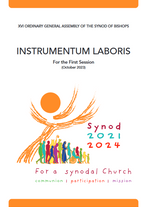
Synod document sets stage for wide-ranging debate on women, Catholic ministries and structures
Extract from Christopher White, Vatican News, National Catholic Reporter, 20 June 2023
When prelates and lay delegates gather in October for the Synod of Bishops, they will be asked to directly confront a number of pressing questions — including the possibility of women deacons, access to the priesthood for married men, the integration of LGBTQ+ Catholics, and penance for sexual abuse and the abuse of power, conscience and money — in consideration of how the Catholic Church might transform and expand its structures to become more welcoming to all its members. In a much anticipated document released June 20, the Vatican's synod office set the stage for a wide-ranging discussion for the first session of a high-stakes meeting that is attempting to respond with "missionary urgency" to the challenges of church life in the modern world. Known in Latin as an instrumentum laboris, the 60-page document will guide the monthlong Vatican summit on a number of themes and concerns that have emerged during a three-year consultative process, which has focused on how the church could become more focused on greater listening and participation of all of the baptized, not just the Catholic hierarchy. Among the issues and considerations in the document are how a synodal church recognizes and values the central role of the poor; the experience of migrants; victims of sexual abuse, violence and other injustices; the disabled; divorced and remarried Catholics; the need for greater commitment to ecumenism and learning from other faith traditions; and the role of women in the church today. The newly released document is the culmination of worldwide listening sessions through local churches that took place 2021-2022 and seven continental gatherings held in early 2023. 'The radical call is, therefore, to build together, synodally, an attractive and concrete church: an outgoing church, in which all feel welcome.' — Synod of Bishops instrumentum laboris. Over the last decade, synodality has emerged as a key theme of Francis' pontificate and as a vehicle of implementing the reforms of the Second Vatican Council and instilling them into the practices and structures of the church today. Earlier this year, Francis dramatically expanded participation in the synod to include lay men and women, for the first time granting them a right to be appointed as full voting members of the Catholic Church's primary consultative body. The new document — which is framed around three interwoven themes of communion, mission and participation — aims to offer an honest account of the key ideas, difficulties, aspirations and fears of Catholics from every corner of the globe. Those ideas will now be up for discernment and discussion by an estimated 370 synod participants in the synod's first session Oct. 4-29......(More)
Vatican releases Synod document calling for discussion of women, LGBT Catholics, church authority and more
Extract from Gerard O'Connell, 20 June 2023, America, The Jesuit Review, 20 June 2023
The secretariat for the synod has published the working document, known by its Latin title instrumentum laboris, for the first session of the General Assembly of the Synod of Bishops on synodality that will be held in the Vatican, Oct. 4 to Oct. 29. The second session will be held in October 2024. "A synodal church is founded on the recognition of a common dignity deriving from baptism, which makes all who receive it sons and daughters of God, members of the family of God, and therefore brothers and sisters in Christ, inhabited by the one Spirit and sent to fulfil a common mission,” said the document. However, it said, many Catholics around the world report that too many baptized persons—particularly L.G.B.T. Catholics, the divorced and civilly remarried, the poor, women and people with disabilities—are excluded from active participation in the life of the church and, particularly, from its decision-making structures....... Cardinal Grech described the working document as “the fruit of a synodal process” that started on Oct. 10, 2021, and “involved the whole church” in an exercise of listening to the people of God. The first phase was articulated in three stages: at the local churches with consultation of the people of God (clergy and laity); at the bishops’ conferences, which engaged in a discernment process about the input from the local churches; and at the continental levels, where input from around the world was synthesized. “Where the bishops started and accompanied the consultation, the contribution has been very alive and profound,” the cardinal said, and the bishops were enriched with “a fruitful ministry.” The document brings together “the fruits” of the synodal journey since October 2021. Unlike the working documents for past synods, which were intended to be amended, improved and voted upon, this document is designed as “a practical aid for the conduct” of the October assembly at which there will be more than 350 participants (including laymen and around 45 women, both lay and consecrated), not a text to be amended. The document states that it “is not a document of the Church’s Magisterium, nor is it the report of a sociological survey; it does not offer the formulation of operational indications, goals and objectives, nor a full elaboration of a theological vision.” It is “part of an unfinished process.” It draws on but also goes beyond the insights of the first phase and articulates “some of the priorities that emerged from listening to the People of God, but avoids presenting them as assertions or stances. Instead, it expresses them as questions addressed to the synodal assembly,” which “will have the task of discerning the concrete steps which enable the continued growth of a synodal church, steps that it will then submit to the Holy Father.”.....(More)
The risk of unrealistic and impatient expectations concerning Pope Francis' project to reform the Catholic Church
Limited extracts from Masimo Faggioli, Signs of the Times, Subscription Journal La Croix International, 15 June 2023
......Mistaken and misleading from an historical and theological point of view. I have the greatest respect for Joan Chittister. Not many have done what she has done to keep the trajectories of Vatican II alive. She has changed a lot of lives for the better. I also experienced, first-hand, the warm welcome of her religious community, the Benedictine Sisters of Erie (Pennsylvania), when I was invited to speak about Pope Francis a few years ago. Chittister makes a number of valid points: the disappointments about ecumenism, the dismissal of the role of women in the Church, the absence of lay ministerial life in many of our churches. Much of this is painfully true in many places, especially in the United States. At the same time, her reading of Vatican II (at least as she describes it in her latest article) is profoundly mistaken and misleading from both an historical and theological point of view. This carries serious risks as we approach a key moment in the "synodal process". Historically, the council did change Catholicism, despite the shortcomings in its implementation. It's a very complicated picture, and one that is still being drawn: what worked and did not work on a global scale; different stages in the council's reception in different parts of the world (or even in the same country); failures that cannot be attributed solely to the papacy or the clergy; the time span needed to measure the effects of a council like Vatican II. An excessive focus on a narrow set of issues The widespread impression from the Anglo-American point of view is that, while Vatican II changed Catholicism's relationship with other Christian denominations, world religions, and the secular world, it failed to fundamentally change the Church's internal dynamics and institutional structures of power. But Vatican II also changed the Church internally, from a theological point of view, in ways that we now often minimize or take for granted. The simple verdict that Vatican II was a failure is, in some ways, the flip side of arguments made by neo-conservative and neo-traditionalist Catholics in the United State. Both sides place an excessive focus on a narrow set of issues and are dismissive of what the council meant for Catholics of other countries and even many American Catholics. Theologically, the question is not -- in my opinion -- whether the council still needs to be implemented and, on some issues, augmented. Vatican II took place sixty years ago and the papal magisterium itself has built on its teaching in undeniable ways, sometimes going beyond the letter of the council. The question is how synodality can pick up the thread of Vatican II, together with hierarchical and collegial dimensions in the life of the Church. A synodal Church will redefine those hierarchical and the collegial aspects, not remove them........(Source)

Allegations against Bishop Georges Colomb of La Rochelle go back ten years when he headed the Paris Foreign Missions (MEP); he's the twelfth French bishop to be accused of abuse in the past year.
Limited extract from Matthieu Lasserre, France, Subscription Journal La Croix International 15 June 2023
Bishop Georges Colomb, head of the Catholic Diocese of La Rochelle in southwestern France the past seven years, has been accused of sexually assaulting a young adult male in 2013 when the prelate was the superior general of the Paris Foreign Missions Society (MEP). The 70-year-old bishop has denied the accusations, which were made public on June 13, and said he will ask Pope Francis to let him temporarily step aside from his administrative and pastoral duties to allow a full inquiry to take place. "I am stunned by these allegations, which I totally deny," said Colomb, who is the latest of at least 12 French bishops to be accused of sexual aggression in the past several months. "I will of course respond to the judicial authorities as soon as they wish to hear from me," he said in a message to Catholics of La Rochelle. "I am aware that these accusations will cause serious disturbances and suffering for all of you. So that I can prepare my defense and so that our diocese can continue to live in communion and bear witness to the Good News, I have decided to ask the Holy Father to put me on the sideline for the time of the investigation, while remaining bishop of La Rochelle," he said. An administrator is expected to be appointed soon to oversee the diocese during Bishop Colomb's absence.....(More). Photo: Bishop Georges Colomb, La Rochelle, XAVIER LEOTY AFP, La Croix 20230615

Limited Extracts from Patty Breen, National Catholic Reporter, 10 June 2023
"If you have issues in your life, influence, power and position will exacerbate all of them." —Carl Lentz, former pastor of Hillsong New York City There is no better way to sum up the new FX documentary "The Secrets of Hillsong" than the above quote by former Hillsong golden boy himself, Carl Lentz. The series documents the rise and subsequent public downfall of the "influencer pastor," but goes well beyond him too, exposing the abusive and toxic history of the church, beginning with founder Frank Houston and continuing through his son Brian Houston. The series, which is streaming on Hulu, is the latest chapter in a developing story that encircles the well-known nondenominational congregation, originally founded in Sydney but now a worldwide movement. Last year's "Hillsong: A Megachurch Exposed" on Discovery+ dove into the accusations of child sexual abuse perpetrated by founder Frank Houston, Brian Houston's alleged cover-up of his father's crimes, and how the continued secrecy and hiding of these crimes has caught up with Hillsong in more ways than one..........If Jesus came back today to see how Christians have manipulated the Gospel message for their own gain, brand and marketing, I imagine he would step in and overthrow the tables. For the sins and struggles of Hillsong are not unique. Sadly, we see this play out again and again in the wider Christian culture, Catholic spaces included......(More). Photo: Then Pastor Carl Lentz leads Hillsong NYC church service in NYC, AP, Tina Fineberg, NCR 20230610

Extract from by Joan Chittister, Global Sisters Report, National Catholic Reporter, 9 June 2023
The word synodality has been around a year or so now and people are still asking what it really means — for them, of course. The last time the church said it was going to make changes was in 1965. Fifty-eight years ago. In the meantime, all the changes to be seen were basically meaningless ones. Not because change was forbidden. On the contrary. The Vatican documents of 1965 oozed theological life. They were clearly meant to dispense with the church of the Middle Ages, to bring the church into the modern world rooted in Scripture and the model of Jesus. But as the ocean liner that brought so many of the American Catholic hierarchy back from Rome disembarked, the New York press corps, snapping pictures and shouting questions, suffered one bishop after another shrugging their questions off. Nothing had really changed, it seemed. Nothing newsworthy, at least. In essence, the assumption was correct. Whatever changes the people had wanted from the 1962-65 Second Vatican Council were, it seemed, formless, silent, lost in the bustle of a busy church frozen in a medieval mind. Instead, after 400 years without a council of reform, the kinds of changes the people had expected from this council lay yet in Rome, drying in wet ink there and largely ignored here. Even more to the point, few, if any, priests taught the council documents to their congregations. Few if any priests admitted that they themselves had not bothered to read the documents either. Oh, a few churches redesigned their confession boxes and a few more took down the altar rails, but really, other than that and the move to the vernacular in all liturgical events — nothing much did happen. Most of the changes were window dressing.........(More) Pope Paul VI proclaims last decrees of Second Vatican Council St. Peter's, Vatican City, 1965, AP, NCR 20230609
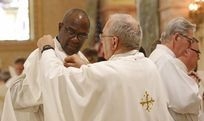
Extract from National Catholic Reporter, 9 June 2023
Results of an annual survey on the permanent diaconate of the U.S. Catholic Church show the estimated number of deacons in active ministry was 13,695 in 2022, the lowest since 2011. "While the share of active permanent deacons in the Latin Church is forecasted to remain relatively stable (72%±3% in 2027), this trend is in keeping with the slow decline in the diaconate over the past several years," said a report on the survey results released June 8 by the U.S. Conference of Catholic Bishops. At the same time "an unusually high number of men (910) were ordained to the permanent diaconate in 2022," it said. "Since 2014, the estimated number of ordinations averaged 642."......The Center for Applied Research in the Apostolate conducted the survey on behalf of the USCCB Secretariat of Clergy, Consecrated Life and Vocations. CARA, based at Georgetown University in Washington, conducts social scientific studies for and about the Catholic Church. Since 2005, CARA has conducted a yearly survey on the diaconate to provide statistics and forecast trends on the state of the permanent diaconate in the U.S. The report released by the USCCB is based on a survey conducted in 2023 about 2022. Altogether, dioceses and eparchies that responded to the survey represent an estimated 81% of all permanent deacons in the United States, according to the report. "Permanent deacons are essential to the Church's ministry of love and service, especially to the poor and vulnerable," Bishop Earl A. Boyea of Lansing, Michigan, chairman of the USCCB's Committee on Clergy, Consecrated Life and Vocations, said in a statement accompanying the report's release.......The survey also showed that most active deacons are between 60-69 years old (41%) or age 70 or older (36%). Most permanent deacons are white (76%) followed by Hispanic/Latino (18%), Asian/Pacific Islander (3%), African American/Black (3%) and Native American/other (1%), the report said.....(More). Photo:Deacon Francis Cuffie vested by Msgr Malagreca, Brooklyn, NY, OSV News, CNS file, Gregory A. Shemitz NCR 20230609

Catholic sector welcomes Government's decision to establish Aged Care taskforce
Extract from CathNews, 8 June 2023
Catholic Health Australia has applauded the Albanese Government’s decision to establish a new aged care taskforce, describing it as a vital step towards resolving the great unanswered funding question left by the aged care royal commission. CHA chair John Watkins has been appointed as a contributing member of the taskforce. CHA’s aged care director Jason Kara said Mr Watkins would bring his experience and skill as well as the Catholic sector’s deep knowledge and history in health and aged care to the taskforce’s deliberations and commended the Government for tackling the issue of aged care funding head-on, rather than deferring or avoiding the difficult decisions that need to be made. “Aged care funding is a thorny issue that previous governments have shied away from and we commend the Aged Care Minister [Anika Wells] for showing the courage to face it squarely,” Mr Kara said. “The current model of aged care is clearly unsustainable and it is high time we addressed the elephant in the room. “We also welcome the Minister’s commitment that the taskforce’s work will constitute an open and public conversation driven by experts to find innovative solutions to this challenge. “The royal commission’s work was hugely important but it left unanswered the great question of how to fund the sector in the long term.....(More). Image:Aged Caree photo by Danie Franco on Unsplash
Extract from CathNews, Source Catholic Weekly, 8 June 2023
Fifty years after the first Aboriginal Liturgy was held at the 1973 Eucharistic Congress in Melbourne, Cardinal Arthur Roche joined Miriam Rose Ungunmerr-Baumannn and senior Australian Catholics at Domus Australia in Rome to celebrate the Church’s ongoing journey towards reconciliation. Cardinal Roche, the prefect of the Dicastery for Divine Worship, was joined at the altar by the rector of Domus Australia, Fr Robert Hayes, and Frs Frank Brennan SJ, David Holcroft SJ, Ben McKenna SM, and the procurator-general to the Columban Fathers in Rome, Fr Robert McCulloch. The Australian ambassador to the Holy See, Chiara Porro, welcomed guests to Domus Australia, including diplomatic representatives from Britain, Lithuania, France, Malaysia and the Democratic Republic of the Congo. Cardinal Roche wore vestments from Fr Brennan’s ordination, sewn by his mother in the 1980s, featuring a reproduction of Dr Ungunmerr-Baumannn’s artwork, God with us down on the Daly. The image was also selected to represent Australia’s embassy to the Holy See, which celebrates its 50th anniversary this year. The Mass was an important part of the 50th anniversary celebrations of diplomatic relations with the Holy See, which were held during reconciliation week. Dr Ungunmerr-Baumann was a prized speaker in Rome during her trip last week, giving lectures on education and dadirri, or deep listening, alongside senior Vatican officials. She met Pope Francis at his General Audience on May 31 and visited the church of St Paul’s Outside the Walls, where Aboriginal monk Francis Conaci was buried.....(More)
[Ed: This contribution is prompted by recent new details of clerical abuse in the US State of Illinois and elsewhere but relates more generally to the issue of abuse in the wider Church]
Limited extract from Sean O'Conaill, Ireland, Subscription journal La Croix International, 7 June 2023
Faced with its apparently unending abuse scandal, Catholic Church leadership should look to scripture, especially the story of King David, for insight into a scenario for resolution. With the global tide of clerical sex abuse scandals still surging in places as far apart as Poland, Ireland and the US state of Illinois, Catholic Church leadership seems as bereft as ever of a strategy for "getting ahead" of such revelations. The Irish bishops agreed with the conclusion of Ireland's national synodal synthesis of August 2022 that a "reckoning" on the disaster has still to be achieved. But it is far from clear that the Synod on Synodality, which is to culminate in Rome in the autumn of 2024, will rise to this challenge. What "shape" could such a reckoning take in any case? How, in particular, would the victims of clerical sexual abuse and their closest kin, picture that?..........A more redemptive way No such comeuppance is possible for the long-dead originators of the Catholic policy of secrecy on clerical sexual abuse. There is as yet no official history of this cover-up but the best short unofficial account tells us that the decisive steps that affected living victims had already been taken by 1962 (A Very Short History of Clergy Sexual Abuse in the Catholic Church by Thomas Doyle)......(Source)
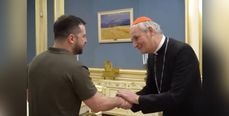
Extract from CathNews, CNA, 7 June 2023
Pope Francis’ envoy to Ukraine, Cardinal Matteo Zuppi, yesterday finished a “brief but intense” two-day visit to Kyiv, which included a meeting with President Volodymyr Zelenskyy. “The results of these talks, such as those with religious representatives, as well as the direct experience of the atrocious suffering of the Ukrainian people as a result of the ongoing war, will be brought to the Holy Father’s attention,” the Holy See Press Office said in a bulletin yesterday. Cardinal Zuppi’s conversations “will undoubtedly be useful in assessing the steps to be taken both on the humanitarian level and in the search for paths to a just and lasting peace”, the bulletin said. Yesterday morning, Cardinal Zuppi stopped to pray at Kyiv’s St Sophia Cathedral, a historic centre of Christianity. He then met with Mr Zelenskyy and other political leaders. The meeting with the President was “very cordial” according to Avvenire, the newspaper published by the Italian Episcopal Conference. Mr Zelensky, writing on the messaging internet service Telegram, said he and Cardinal Zuppi discussed the situation in Ukraine and humanitarian cooperation. “Only joint efforts, diplomatic isolation, and pressure on Russia can bring a just peace on Ukrainian soil,” Mr Zelenskyy said. “I ask the Holy See to help implement the Ukrainian peace plan. Ukraine welcomes the willingness of other states and partners to find ways to peace, but since the war is on our territory the solution for achieving peace can only be Ukrainian.”.....(More). Photo: Cardinal Zuppi President Zelenskyy Kyiv, YouTube Vatican News, CathNews 20230607

NATSICC launches website on Indigenous Voice to Parliament
Extract from CathNews, 6 June 2023
The National Aboriginal and Torres Strait Islander Catholic Council has launched a new website called “One Journey, Together” for Catholics to learn about the Indigenous Voice to Parliament. The website hosts stories and anecdotes from Aboriginal and Torres Strait Islander communities and organisations, Catholic figures and organisations. Darwin Bishop Charles Gauci said: “As Australians we are at a very important time reflecting on the Voice to Parliament. I will not tell anyone how to vote, but it is my responsibility as Bishop to encourage you all to be reflective in the light of our faith and Catholic Social Teachings: the common good and the dignity of all people. “We need the ongoing journey of reconciliation and healing. Whatever happens with the Voice will not solve all the issues, we are all on the journey together. Let’s make sure we are informed, and to see which is the best way forward for dignity and respect for all.” The website hosts messages from Aboriginal and Torres Strait Islander leaders and community members, bishops and other religious leaders and statements from Catholic organisations on the Indigenous Voice to Parliament to support the Catholic community to vote in a way that aligns with their Catholic values. It also includes activities and resources for parishes. NATSICC Chairperson John Lochowiak, said: “We are proud to be Aboriginal and Torres Strait Islander and we are proud to be Catholic. Our shared faith calls on us to come together as one to uphold justice, and I encourage Catholics to take a look at the website and learn more about how they can engage in this important referendum.” .....(More). Image: OneJourneyTogetherLogo-NATSICC CathNews 20230606

A nun makes the case for women deacons to Pope Francis
Extract from Casey Stanton, Ameruca, The Jesuit Magazine, 6 June 2023
In early June, Pope Francis received three Indigenous women leaders from the Ecclesial Conference of the Amazon (CEAMA), an innovative form of church governance in which the bishops of the Amazon share formal leadership with Indigenous lay women, women religious, lay men, priests and deacons. During the audience, the women invited the pope to consider the full and equal participation of women in the church, including through preaching in parish settings and ordination as deacons. One of the women who attended the audience with Pope Francis was Laura Vicuña Pereira Manso, C.F. Sister Laura is currently serving as the vice president for CEAMA, a historic leadership role within a body that has steadily called upon the pope to more deeply consider the ministerial roles of women in the church since the Synod of Bishops on the Pan-Amazonian Region in 2019. (The final document of that synod called for greater leadership roles for women but stopped short of calling for the ordination of women to the diaconate...........A shortage of priests, resources and skill sets for effective ministry have already burdened many local churches. Many Catholic parishes have had to merge or close in response to these pressures. However, in some places, like the Pan-Amazonian region, it is common for bishops to delegate women to preside at baptisms and marriages. We know that Catholic women around the world are regularly preaching the Word, serving as chaplains in hospitals and prisons, leading parishes and social service organizations and engaging in a variety of works of mercy and justice. For instance, Philomène Péan in Boston serves a collaborative of parishes, working alongside a priest to provide pastoral care in diverse communities from Lithuania and Central and South America and to welcome Haitian refugees. With decades of experience in chaplaincy, retreat leadership, spiritual direction and parish ministry, Philomène radiates with Christ’s presence in every encounter. Whether she is accompanying recent refugee families from Haiti, ministering to the historic Lithuanian Catholic community in South Boston, visiting the elderly, leading liturgies of the Word or praying with families at funeral homes, she is a witness to the Christ who came to serve, not to be served......(More). Photo:Laura Vicuna Pereira Mansom Pope Francis June 1 2023, Vatican Media, America Mag 20230606
Extract from Tom Heneghan, The Tablet, 6 June 2023
The sentence is one of the most severe penalties for clerical sexual abuse handed down in France.
The courthouse in La Roche sur Yon, where Fr Pierre de Maillard was sentence on 2 June. A priest of the Society of Saint Pius X (SSPX) has been sentenced by a French court to 20 years in prison for the rape and sexual assault of 27 minors – 16 boys and 11 girls between 12 and 15 years old at the time. Some of Fr Pierre de Maillard's victims were from the same family, sometimes abused in their parents' homes, the jury trial in La Roche sur Yon, capital of the Vendée department of western France, was told. Before the jury retired to consider its decision, the 55-year-old priest said: “Excuse me, I’m sorry, excuse me, I’m sorry.” The sentence on 2 June was one of the most severe penalties for clerical sexual abuse handed down in France, where the Catholic Church has been haunted by the scandal for years. Fr Maillard was posted in the Vendée when the accusations became public in late 2020. The SSPX in France suspended the priest and has cooperated with judicial authorities. After serving his term, he will be under judicial observation for a further 10 years, restricted to the local region and banned from any work with youths. The SSPX, which claims about 700 priests, rejects the reforms of the Second Vatican Council and celebrates Mass in the Tridentine rite. Its bishops were excommunicated from 1988 until 2009, when the late Pope Benedict XVI controversially lifted the ban without any concession from the intransigent society. Pope Francis has made small steps of reconciliation, such as accepting the validity of marriages and confessions by its priests, but has not given the society the Vatican approval it long sought.....(More).
Extract from Brian Fraga, National Catholic Reporter, 6 June 2023
When the U.S. Catholic bishops gather for their spring plenary assembly in Orlando, Florida, June 14-16, the prelates will hear updates on their three-year initiative to revive Americans' interest in attending Mass each week. They will also discuss possible updates to the ethical guidelines for Catholic health care institutions. What the bishops apparently will not hear are any briefings about recent developments or upcoming milestones related to Pope Francis' ongoing process for the 2021-2024 Synod, the three-year global effort at listening and dialogue that the pontiff has said is what "God expects of the church of the third millennium." The synod's absence from a preliminary agenda the bishops' conference released for the June 14-16 meeting is the latest stark example of how the U.S. episcopate has sometimes resisted or dismissed Francis' priorities for the universal church. Massimo Faggioli, a church historian and theologian at Villanova University, called it "astonishing" that the U.S. bishops' draft agenda does not include discission of Pope Francis' ongoing process for the 2021-2024 Synod. "It's astonishing that [synodality] is absent from the agenda, but it reflects a more general problem in the Catholic Church as a whole in the U.S., where interest for the synod has been weak or, in some cases, it's been resisted," said Massimo Faggioli, a church historian and theologian at Villanova University. In mid-April, the bishops' conferences of the United States and Canada released a 39-page report, "For a Synodal Church: Communion, Participation, and Mission," which marked the end of the synod's continental stage. The report will be used to help set the agenda for the two planned meetings of the Synod of Bishops in October 2023 and October 2024. Jesuit Fr. Tom Reese, a journalist who has covered the bishops' conference for decades, said it seems the U.S. prelates will not publicly discuss the synod until their fall assembly in November, after the synod's first session. In the new U.S. and Canada synod report, participants in the continental process say the Catholic Church needs to better listen to and incorporate the marginalized voices of youth, the poor, the LGBTQ community, clergy sex abuse survivors and women.....(More)
Extract from Sean Murphy, National Catholic Reporter, 6 June 2023
The Statewide Virtual Charter School Board, a state school board in Oklahoma, voted Monday, June 5, to approve what would be the first publicly funded religious school in the nation, despite a warning from the state's attorney general that the decision was unconstitutional. Drummond had previously warned the board that such a decision clearly violated the Oklahoma Constitution. A state school board in Oklahoma voted June 5 to approve what would be the first publicly funded religious school in the nation, despite a warning from the state's attorney general that the decision was unconstitutional. The Statewide Virtual Charter School Board voted 3-2 to approve the application by the Catholic Archdiocese of Oklahoma City to establish the St. Isidore of Seville Virtual Charter School. The online public charter school would be open to students across the state in kindergarten through grade 12. Oklahoma Attorney General Gentner Drummond had warned the board that such a decision clearly violated the Oklahoma Constitution. "The approval of any publicly funded religious school is contrary to Oklahoma law and not in the best interest of taxpayers," Drummond said in a statement shortly after the board's vote. "It’s extremely disappointing that board members violated their oath in order to fund religious schools with our tax dollars. In doing so, these members have exposed themselves and the state to potential legal action that could be costly." The Archdiocese of Oklahoma City said in the "vision and purpose of the organization" section of its application that: "The Catholic school participates in the evangelizing mission of the Church and is the privileged environment in which Christian education is carried out."....(More)

The Australian Catholic Bishops Conference has launched its Laudato Si’ Action Plan on World Environment Day, outlining practical responses to Pope Francis’ landmark
Extract from CathNews, ACBC Media Blog, 5 June 2023
When it published the 2021-22 Social Justice Statement Cry of the Earth, Cry of the Poor, the Bishops Conference committed to developing its own plan – believed to be the first episcopal conference in the world to make that pledge. Soon after, the Conference set up a working group made up of Bishops Conference staff and chaired by Bishop Vincent Long OFM Conv, chair of the Bishops Commission for Social Justice, Mission and Service. “I’m very pleased to announce that we have released our plan and registered it with the Vatican’s Laudato Si’ Action Platform today,” Bishop Long says in a video message to mark the launch. “The plan contains actions to care for our common home, the earth, and all who live on it. The Conference’s Secretariat and all our agencies will be busy implementing these actions over the next two years and we’ll be adding new actions for the following five years. “We hope it will encourage Catholics around Australia to make a commitment to do more to care for our planet and to leave a worthwhile legacy for generations to come.”..........“That means that every parish and diocese around Australia will need to be involved in a plan like the one launched today,”........(More). Image: Laudato Si action Plan 1 CathNews 20230605
https://cathnews.com/2023/06/05/bishops-conference-launches-laudato-si-action-plan/

Mariana Mazzucato has a plan to revitalize the global economy
Limited Extract from Bruce Duncan CSsR, Australia, Subscription Journal La Croix International, 3 June 2023
Australia's treasurer, Jim Chalmers is not the only one looking to Mariana Mazzucato for ideas about reforming our global economic system, so is Pope Francis. The pope commends Mazzucato's thinking for offering a compelling analysis of problems in the global economy and what can be done to build a more sustainable and fairer world. This coincides with his own hopes, including about reframing economics on the basis of universal human values. In November 2022 he appointed Mazzucato, a "great economist", to the Pontifical Academy for Life to "give it a little more humanity" and broaden its scope. Both Francis and Mazzucato are highly critical of neoliberal forms of capitalism that have concentrated wealth in the hands of a few at the expense of the great majority of people. Both urge reforms in global economic systems to eradicate hunger, gross poverty and inequality, as well as averting, in the pope's words, the looming climate "catastrophe". Both have been strong supporters of the UN Sustainable Development Goals as the most promising program to promote a more just and inclusive order, yet they are alarmed that the SDGs are nor achieving their targets. Many people are aware of the pope's call to action to remedy climate change and keep fossil fuels in the ground, but not so many know of his advocacy for reform of the international economy. Francis embraced the UN SDGs as an historic effort to create a more humane and equitable world, and wrote Laudato si' in collaboration with some of the key architects of the SDGs. The encyclical of May 2015 did not explicitly name the SDGs, since they were not approved until the UN delegates voted for them on 25 September 2015, immediately after the pope had addressed the UN General Assembly. Active in economic and policy circles, and an advisor to many governments Writing in "Financing the Common Good" in the Project Syndicate on 1 May 2023, Mazzucato insisted that "to create a truly inclusive economy… deep structural change is needed". She echoed UN Secretary General Antonio Guterres in calling for a "Common Agenda" for global cooperation with decisive action....Mazzucato is particularly critical of how rich countries during the COVID-19 crisis, "aided by a flawed system of intellectual-property rights, hoarded vaccines". She writes that "more than a million lives could have been saved" if accessibility and equity had been made explicit objectives in distributing vaccines..........(Source). Photo: Mariana Mazzucato, Wikimedia Commons La Croix 20230603
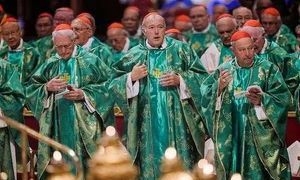
As of June 2, the cardinal-electors appointed by Pope Francis have the necessary two-thirds majority for choosing his successor. But are they really a like-minded group?
Limited Extract from Loup Besmond de Senneville, Vatican City. La Subscription journal Croix International, 2 June 2023
Pope Francis celebrated Mass with new cardinals on August 30, 2022 in St. Peter's Basilica. At the center, Cardinal Robert McElroy of San Diego (California), one the new members of the so-called "Bergoglio generation". With his scarlet cassock, white lace surplice and red biretta on his head, he looks like he came out of a film by Paolo Sorrentino, the Italian director who has spent two decades portraying cardinals in his movies. But that's because the cardinal who walks through the main doors of Saint Thadeus the Apostle Parish on the outskirts of Rome this particular Sunday is quite young. At 48 years of age, Giorgio Marengo is the youngest member of the College of Cardinals. And if he lives to the age of 80, he will have been eligible to vote in a conclave for nearly thirty-two years... This young Italian cardinal, who is the apostolic prefect of Ulaanbaatar in Mongolia, was in Rome on May 21 to take possession of his "titular" church. During his homily he echoed Pope Francis and insisted that the Church must grow "by attraction, not proselytism". He told his new "parishioners" in Rome that he and his people back in Mongolia are part of "the least visible part of the Catholic Church". He then spoke a few words in Mongolian, for those back in the East Asian country who were following the ceremony live via the Internet. Cardinal Marengo is one of the 81 men still under the age of 80 who got their red hat from the Jesuit pope. And on June 2, they officially became part of the two-thirds majority in the 121-member group of cardinals currently eligible to vote in a conclave. Many in Rome say that they are all "Bergoglians", meaning they were created cardinals by Jorge Mario Bergoglio (the baptismal and family name of Francis). But what does this really mean? Is it a mathematical assurance that they will elect a new pope that is similar to the the current one from Argentina?.....(Source). Photo: Pope Francis Mass new cardinals, ANDREW MEDICHINI AP La Croix 20230602

A recent survey showed that a small group of French Catholics like the pre-Vatican II liturgy, but that does not mean a return to the past is the wave of the future
Limited extract from Isabelle de Gaulmyn (Paris), subscription Journal La Croix International, 2 June 2023
The solution has been found! To save the Church from its predicted demise, we need more "sacrality", a return to the "Traditional Latin Mass", and a "more traditional discourse" on social issues. Then all will be right with the Catholic world... Obviously, I'm just caricaturing. But this was the tenor of some of the comments that began circulating after the success of the traditionalist Chartres Pilgrimage over Pentecost weekend and the publication of La Croix's survey of young Catholics going to World Youth Day, who indicated enthusiasm for more classical forms of their religion. The truth is, for the past 25 years we've been hearing the same thing, and in almost the same words... One generation, the "conciliarists" or the famous "Vatican II generation", has failed to maintain Catholicism at its current level. And so we need to return to more traditional celebrations, even in Latin, and to a more interior, less "social" practice of the Catholic faith.......(More). Photo:Latin Mass, Josh Applegate, unsplash, La Croix 20230602
Extract from CathNews NZ, The Guardian, 1 June 2023
Victoria backtracks on plan to impose payroll tax on ‘high-fee’ schools
Extract from CathNews, Daniel Andrews, ABC News, The Guardian. Life Insurande International, 20230605
The Victorian Government has watered down its plan to strip payroll tax exemptions from 110 non-government schools, with Daniel Andrews conceding the measure will not raise as much money as forecast in the state Budget. According to the budget, about 110 “high-fee” schools, or “around the top 15 per cent by fee level” were to lose their payroll tax exemptions from mid-2024, raising more than $420 million over three years. That estimate was based on an annual fee threshold of about $7500 per student. But amid strong resistance from independent and Catholic schools about the changes, the Premier on Friday told a budget estimates hearing the number of schools to be affected will be lower than forecast. He said the $7500 fee figure was set in 2020 and was “not necessarily reflective of fees and costs and pressures in the school fee environment now”. He said Education Minister Natalie Hutchins was consulting with the sector and would determine a new threshold at which private schools will be charged payroll tax. “There’ll be less than 110 schools … and the overall revenue that is derived from this measure will almost certainly be less than what has been forecast,” Mr Andrews said.....(More)
Extract from CathNews NZ, 1 June 2023
The Flemish bishops’ decision to bless same-sex unions is reasonable, says Bishop Johan Bonny. Bonny and the other Flemish bishops of Belgium introduced a blessing for same-sex couples in September 2022. They also published a handout outlining suggested liturgy and prayers. The bishops’ based their decision to go ahead with the same sex blessings on Pope Francis’ 2016 apostolic exhortation Amoris Laetitia. Bonny denies the blessings present a conflict of conscience, even though he is going against a definitive 2021 Vatican ruling that the Church does not have the power to bless same-sex unions. The Vatican has “different positions and developments”, he says. “Rome is not just a document or a cardinal. No, Rome is also unity in diversity.” Neither Vatican spokesman Matteo Bruni nor the Diocese of Antwerp responded to media requests for further clarification.....(more)
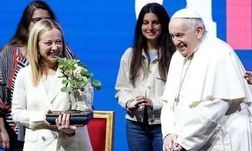
From confronting Donald Trump to sharing the stage with Viktor Orbán and Giorgia Meloni
LImited extract from Massimi Faggioli, Subscription Journal La Croix International, 1 June 2023
Those who closely follow Pope Francis have seen that in the past several weeks he has accepted invitations and shared the stage with the two leaders who most symbolize the power of neo-nationalist and anti-liberal forces in Europe today. First, there was the papal visit to Hungary (April 28-30). The Jesuit pope went to the nation's capital, but not for any international ecclesial or diplomatic event, which is usually the reason for his trips to European nations. Prime Minister Viktor Orbán had invited Francis to visit Hungary in April 2022. The kleptocratic strongman leads a Church-friendly "illiberal democracy" (Orbán's term) with a considerable base of support among Catholic cultural warriors in the United States. It's not clear how the 86-year-old pope avoided being manipulated in Hungary. His host is the same prime minister who has cynically released hundreds of convicted migrant smugglers as a mean of pressure on neighboring countries and the European Union. Just a few days after Francis left Budapest, Orbán praised the papal visit at the Hungarian version of the American conservative convention CPAC while giving a speech on how to defeat "the woke mind virus". The pope's second time in Budapest....(Source). Photo: Pope Francis Italian PM Giorgia Meloni May 2023 ZUMA PRESS MAXPPP, La Croix 20230601
Extract from ACBC, 11 May 2023
As a vote on an Indigenous Voice to Parliament nears, Australia’s bishops have encouraged Catholics to read and discuss the Uluru Statement from the Heart – the document from which the Voice proposal emerged. During their plenary meeting in Sydney this week, the bishops considered how they might assist Catholics in preparing for the referendum to enshrine the Voice to Parliament in the Constitution, with a vote due in the second half of 2023. While the bishops – based on a decision they took in May 2022 – will later this year issue their annual Social Justice Statement on the place of Aboriginal and Torres Strait Islander Peoples in Australian society, they decided to issue a statement at this point in the referendum process. The bishops argued that the fact First Nations Peoples have lived in Australia for many thousands of years but their custodianship of the land isn’t mentioned in the Constitution is “an omission which needs to be rectified”. A Voice to Parliament isn’t the only way to achieve that outcome, the bishops wrote, but it “is the way requested by those who gathered at the historic meeting at Uluru”. “This could be a significant step towards a more just and equitable Australia,” the statement says. “We want to encourage all Australians to educate themselves as well as possible concerning the proposal to establish the Voice. “This is an important moment in the history of the nation, and it can help us to move towards a deep and just reconciliation. It also offers a mechanism to improve the lives of Aboriginal and Torres Strait Islander Peoples.” The bishops call for a meaningful debate on the issue, acknowledging that “people may, in good faith, have differing concerns and perspectives”. “We are an open democracy, and this is a moment to use our democratic institutions to produce a high-quality debate shaped by a genuine concern to do justice and bring healing to First Nations Peoples,” they wrote. “We ask those drafting the changes to the Constitution to work together in a spirit of cooperation, so that the proposal presented to the Australian people will appeal to a wide range of the population.”......(More)
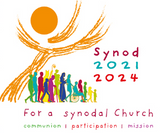
Extract from Salvatore Cernuzio, Catholic Outlook, 27 April 2023
The Secretariat for the Synod announces that 70 “non-bishop members” appointed by the Pope—half of whom will be women—will be able to vote at the Synod General Assembly in October. Neither the nature nor the name is changing—which remains the Synod of Bishops—but the composition of the participants in the October 2023 General Assembly in the Vatican on the theme of synodality is set to change, since a sizeable group of “non-bishop” members will also take part. These 70 individuals will include lay people appointed directly by the Pope, 50 percent of whom shall be women and among whom shall be included several young people. All 70 will enjoy voting rights at the Assembly, which will consist of around 370 voting members out of more than 400 total participants. ‘Not a revolution’ These represent the main changes introduced on Wednesday by Pope Francis for the Synod Assembly, which will seal the synodal path he himself launched in the Autumn of 2021. The changes were presented by Cardinal Mario Grech, Secretary General of the Secretariat for the Synod, and Cardinal Jean-Claude Hollerich, the Synod’s General Relator. “This is not a revolution but an important change,” they specified at a press conference at the Holy See Press Office on Wednesday. “Non-bishop” members The new arrangements were communicated on the same day in a letter to the heads of the Continental Assemblies held recently in Africa, Asia, the Middle East, and Oceania. The letter states that no current regulations have been repealed, and that the 2018 Apostolic Constitution Episcopalis Communio already provided for the presence of “non-bishops” at the Synod. The 70 non-bishop members will be chosen by the Pope from a list of 140 prepared by the 7 International Reunions of Bishops’ Conferences and the Assembly of Patriarchs of Eastern Catholic Churches. They shall represent “various groupings of the faithful of the people of God (priests, consecrated women, deacons, lay faithful)”, according to the letter. The Synod Assembly shall also no longer include “auditors”......(More)
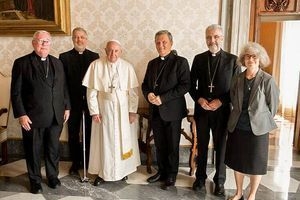
Extract from Gerard O’Connell America The Jesuit Reiew, 26 April 2023
For the first time in the history of the synod, Pope Francis has given women the right to vote and has also made a radical change to the membership of the Synod of Bishops on Synodality. At the synod, which opens in October, between 21 and 25 percent of the members with a right to vote will not be bishops. These members will include consecrated women and men as well as lay women and men. All those who are members of the synod will have a right to vote. Ever since the Second Vatican Council, popes have summoned the world’s bishops to Rome for a few weeks at a time to debate particular topics. At the end of the meetings, the bishops vote on specific proposals and put them to the pope, who then produces a document taking their views into account. Until now, the only people who could vote were men. For the first time in the history of the synod, Pope Francis has given women the right to vote and has also made a radical change to the membership of the Synod of Bishops on Synodality. The news was broken at a press briefing on April 26 by Cardinal Mario Grech, the secretary general of the synod, and Cardinal Jean-Claude Hollerich, the relator general of the synod. Explaining the change in synod membership, Cardinal Hollerich explained that while in the past, 10 clerics belonging to Institutes of Consecrated Life and elected by the respective organizations representing the superiors general could participate in the synod, this is no longer the case. Instead of 10 clerics, these groups will now be represented by “five women religious and five men religious,” and “as members of the synod, they will have the right to vote.” Cardinal Hollerich also noted that there will no longer be auditors present at the synod, as there were in the past. Instead, “an additional 70 non-bishop members have been added who represent various groupings of the faithful, of the people of God [priests, consecrated women, deacons, lay faithful] and who come from the local churches.” These will be chosen by Pope Francis from a list of 140 names presented to him by the seven international reunions of bishops’ conferences and the assembly of the patriarchs of Eastern Catholic Churches. The cardinal said that Francis requested that “50 percent of them be women, and that the presence of young people also be emphasized [in choosing these members].” All 70 will have a right to vote. ....(MORE) Photo: Pope Francis, leaders of the Synod of Bishops general secretariat, CNS photo Vatican Media, America TJR 20230426
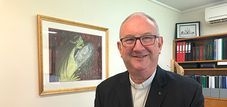
General secretary elected provincial, to leave Bishops Conference
Extract from CathNews, ACBC Media Blog, 26 April 2023
Fr Stephen Hackett MSC has been elected provincial superior of the Missionaries of the Sacred Heart in Australia and will conclude his time as general secretary of the Australian Catholic Bishops Conference in July. Fr Stephen Hackett MSC has been elected provincial superior of the Missionaries of the Sacred Heart in Australia and will conclude his time as general secretary of the Australian Catholic Bishops Conference in July. Fr Hackett’s ministerial background included appointments within secondary and tertiary education, as a parish priest in several Australian dioceses and as vicar general in the Diocese of Darwin. He took over the role of general secretary, leading the day-to-day operations of the Bishops Conference, in 2016. He chairs the National Liturgical Architecture and Art Council and is a member of the Australian Catholic Council for Pastoral Research – two advisory bodies to the Bishops Conference. He is also a member of the ecumenical Australian Academy of Liturgy........(source). Photo: Fr Stephen Hackett MSC ACBC
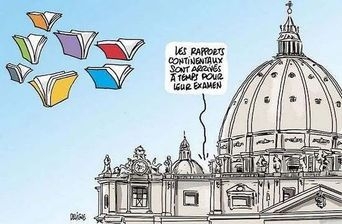
Bishops and lay people have held continental meetings to prepare the agenda for the Synod assembly in October. Their reports reveal a diversity of opinions and hopes for reform.
Limited extract from Loup Besmond de Senneville, Vatican City, Subscription Journal La Croix International, 25 April 2023
April 25, 2023
The General Secretariat of the Synod gathered a group of theologians in Rome from April 12-19 to examine those pages, which include the reports that bishops and lay people drafted over the past few months during continental or regional assemblies. These texts will be used to draw up the Instrumentum laboris (or working document) for the next international assembly of the Synod in October. The new document is expected to be made public sometime in May. And what is it likely to say? First of all, Catholics are looking for Church reform, something that seems necessary in order to respond to secularization and other issues that all societies have in common – such as climate change, violence and war. Attention to the "margins" Each continent has identified "tensions" that the Church must face, even within its own borders. Among the seven identified by the Europeans, we find, for example, the liturgy, the articulation between the hierarchical Church and the synodal Church, between global and local. The sexual abuse crisis and the questions concerning the Church's credibility are also cited, as in North America. The theme of inclusion for those from the "margins" is very present, but their definition differs according to the continents: homosexuals in Europe, polygamists in Africa and in Oceania, women and young people everywhere. Among these "tensions", we note in particular the one that balances "mercy" and "truth". "Young people want a Church that is close to people, including those on the margins, open to the problems of separated and remarried people, LGBTQIA+ people," say the Slovenian representatives, quoted by the European report. "But they also want the Church to say clearly that not everything is acceptable! So the Church must listen, but also tell the whole truth with a lot of love!" More room for women The role of women is also one of the central issues in these reflections. All the reports express the desire to give women more responsibility and to ensure that they can take part in decision-making processes. When proposing methods for addressing this issue, the recommendations vary: the writers of the Middle East report ask for "serious reflection" on female diaconate: some members from Oceania propose their ordination as priests. Faced with these tensions, Catholics around the world are defining "priorities," but these vary greatly from continent to continent.....(Source) Photo: Cover image, 7 Continent Reports, Image DELIGNE, La Croix 20230425
Doctors fight states’ push for telehealth euthanasia consultations
Extract from CathNews, 24 April 2023
One thousand health professionals – most of them doctors and including leaders in geriatric and palliative care – have united to oppose a push by the states to allow telehealth appointments for euthanasia. Source: The Weekend Australian. The states, all of which now have voluntary assisted dying laws, are seeking an exemption from the Philip Nitschke-era federal ban on the use of phone or internet to “counsel or incite” suicide or “promote” suicide methods. States and euthanasia advocates argue the federal law frustrates access to VAD for regional patients with limited access to local doctors and specialists. The issue is listed for discussion at the April 28 meeting of the Standing Council of Attorneys-General in Darwin, led by Queensland and supported by other states. However, the 1000 medicos – including past senior figures in key professional bodies – have penned an open letter in The Weekend Australian warning it would create “great hazards and injustice”. “Further relaxation of criminal codes to facilitate telehealth for VAD assisted suicide would remove protections owed those vulnerable to suicide under duress and in need of palliative care, aged care and mental health services, especially so in regional and remote Australia,” their letter says. “It is oversimplistic and in breach of a patient’s rights and owed dignity in healthcare to imagine competence, informed consent, lack of coercion, mental illness and comprehensive health care or palliative care needs can be adequately assessed using telehealth by VAD doctors.”....(More)
Extract from CathNews, 24 April 2023
Pope Francis has appointed Broken Bay Bishop Anthony Randazzo to the role of Apostolic Administrator of the Personal Ordinariate of Our Lady of the Southern Cross, Australia. Pope Benedict created the Ordinariate in 2012 to provide a pathway for Anglicans to full communion in the Roman Catholic Church, while retaining elements of their worship traditions and spiritual heritage in their union with the Catholic Church. Although Bishop Randazzo has been called to serve under the direct authority of the Pope, in communion with the bishops of the Australian Catholic Bishops Conference, he will continue as Bishop of Broken Bay. “The Ordinariate, which is equivalent to a diocese, is built up of communities and individuals of the Anglican heritage gathered around the Ordinary,” Bishop Randazzo said following the Vatican announcement on Friday evening.....(More)

Extracts from political reporter Matthew Doran, ABC News, 21 April 2022
The government’s top lawyer insists the proposed Indigenous Voice to Parliament would "enhance" Australia's system of government, arguing he does not believe it would "pose any threat" to the nation's parliamentary democracy. Key points: The federal government has released the solictor-general's legal opinion on the Voice; The government's legal counsel says the Voice proposal is sound and would enhance responsible government; Australians will vote on the Voice to Parliament referendum later this year. Solicitor-general Stephen Donaghue KC has also dismissed suggestions the creation of the advisory body, enshrined in the constitution, would lead to a deluge of legal challenges. Dr Donaghue's legal opinion was released as part of federal parliament's inquiry into the proposed wording of the referendum question and proposed constitutional amendment. It is dated April 19, 2023, almost one month after the prime minister revealed the government’s final position on the Voice referendum proposal. The federal opposition has been demanding the solicitor-general’s advice to cabinet, provided during the drafting process, be published..............The opinion picks apart the proposed section 129 of the constitution, which would be inserted into the nation's founding document if the referendum is successful later this year. "A core rationale underpinning the proposed amendment is to facilitate more effective input by Aboriginal and Torres Strait Islander peoples in public discussion and debate about governmental and political matters relating to them," Dr Donaghue wrote earlier this week. "Insofar as the Voice serves the objective of overcoming barriers that have historically impeded effective participation by Aboriginal and Torres Strait Islander peoples in political discussions and decisions that affect them, it seeks to rectify a distortion in the existing system. "In my opinion proposed s 129 is not just compatible with the system of representative and responsible government prescribed by the Constitution, but an enhancement of that system." Dr Donaghue rejected concerns the High Court's workload would increase exponentially if the Voice to Parliament's advice was ignored. "The suggestion that a consequence of empowering the Voice to make representations to the Executive Government will be to clog up the courts, or to cause government to grind to a halt, ignores the reality that litigation concerning the validity of decisions of the Executive Government is already very common, and that it does not have either of those consequences," Dr Donaghue wrote. "Accordingly, even if proposed s 129(iii) did not empower the Parliament to legislate to specify the legal effect of representations of the Voice (which in my view it clearly does), proposed s 129 would not pose any threat to Australia's system of representative and responsible government.".....(Source). Photo: Solicitor Gen Stephen Donaghue Voice enhance Aus democracy, ABC News, Luis Ascui, 20230421
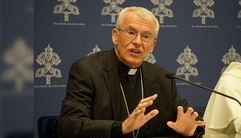
Synod organisers say process should lead to greater local control in Church
Extract from CathNews, NCR Online, 21 April 2023
Organisers of Pope Francis’ consultation with Catholics around the world say there is a growing consensus that the ongoing Synod of Bishops process should result in the Vatican giving more deference to local Church authorities. “There is, in fact, more than one way of being the Church,” said Perth Archbishop Timothy Costelloe SDB, who said that a significant feature of synodality is the understanding that unity does not call for uniformity within the Church. Archbishop Costelloe’s remarks came during a Vatican press conference yesterday to mark the conclusion of the continental phase of the three-year Synod process. During February and March, seven continental meetings took place to reflect on themes that emerged during the first phase of the Synod process, which included tens of thousands of listening sessions with Catholics worldwide. After the second phase of those gatherings, the third phase will include two month-long assemblies in Rome in October 2023 and October 2024. The findings from the initial listening sessions were detailed in the 45-page “Enlarge the space of your tent” document released last October. That report formed the basis of the continental meetings that, according to Archbishop Costelloe, evidenced widespread enthusiasm for this new era of openness and dialogue. “There’s almost universal appreciation of the process and a desire that we not go backwards, that we’ve found something precious in the life of the Church, which has great potential for the future and that we need to continue down this pathway to the future, to be more fully the Church that we’re supposed to be,” Archbishop Costelloe said. Yet Archbishop Costelloe, a member of the seven-person team that will organise the Synod of Bishops meeting in Rome this October, cautioned that the Synod cannot be reduced to just one issue or a handful of concerns. Vatican Synod office undersecretary Sr Nathalie Becquart XMCJ said two of the major questions being reckoned with through the Synod process are what should be decided at each level of the Church and how to maintain the Church’s unity, with room for flexibility and local adaptations.....(More). Photo:Abp Costelloe addresses Vat Media Conf, OSV News Justin McLellan, CathNews 20230421
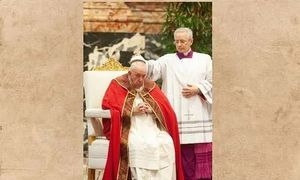
Francis catapults his master of liturgical ceremonies into the episcopate.
Extract from Robert Mickens, Letter From Rome, La Croix International, 22 April 2023
Disappointing. Perhaps that is the best way to describe it. The Holy See Press Office announced this past Friday that Pope Francis has decided to make the priest that serves as his Master of Liturgical Celebrations a bishop. Actually, he's graced Mgr Diego Ravelli with the personal title "archbishop" and has appointed the 57-year-old Italian the first-ever head of the recently created titular diocese of Recanati. Why is this disappointing? Well, for one thing, making a Vatican official -- or anyone who is not the ordinary of a diocese -- a bishop is theologically and sacramentally problematic. We'll get to that in a moment. But first, consider this: there is absolutely no requirement that a master of ceremonies in the Catholic Church even be a deacon or priest, let alone a bishop. Holy Orders are not required. Competent lay persons -- including women -- can have this position. And in more and more places around the world, they do. Of course, there are those of the clerical caste who believe women should be kept out the sanctuary and allowed nowhere near the altar. The role of the MC But most people probably didn't think our Jesuit pope was one of them. Even if he has never introduced female servers at papal liturgies at the Vatican, he did open up the permanent ministries of acolyte and lector to women. The MC is like the chief acolyte or head server, albeit with very specific responsibilities: "to oversee the proper planning of sacred actions and their being carried out by the sacred ministers and lay faithful with decorum, order and devotion" (General Instruction of the Roman Missal, 106). The Ceremonial of Bishops (no. 34-36) list the following as part of the MC's duties.......(More). Photo: Pope Francis, Mgr Diego Ravelli, Massimiliano MIGLIORATO, Catholic Press Photo, MaxPPP, La Croix 20230422
CathNews, Yahoo News, 21 April 2023
A review of religious exemptions for educational institutions has been granted an end-of-year extension by the Albanese Government. The Australian Law Reform Commission is reviewing how federal anti-discrimination laws apply to religious schools. A final report was due in April but because of the large number of submissions, Attorney-General Mark Dreyfus announced yesterday the reporting date had been extended. Mr Dreyfus said the extension would give the commission more time to consider exemptions for educational institutions in federal anti-discrimination law. Commissioner Stephen Rothman will now report back to the Government before the end of the year. But national LGBTQI advocacy group Just.Equal said the extension was an opportunity to expand the inquiry’s scope to include faith-based organisations such as hospitals and charities. Spokesperson Sally Goldner said discrimination in faith-based hospitals, disability, welfare and employment services and charities was just as serious as in schools. Christian Schools Australia said the report’s delay would create apprehension among people of faith across the country. “Protections against discrimination for people of faith are long overdue and LGBTQI students should not have to live with the fear whipped up by activists,” public policy director Mark Spencer said. “The time for action on these issues is now.” The Albanese Government has committed to ensuring religious schools cannot discriminate against students on the basis of their sexual orientation, gender identity, or relationship status. It has also pledged to rule out discrimination against staff on the basis of their sexuality or gender while ensuring religious schools have the power to preference staff of their own faith when hiring.....(More)
Extract from Mary Brazell, Catholic Outlook, Diocese of Parramatta, 20 April 2023
Members of the faithful across Western Sydney and the Blue Mountains are invited to learn more about the upcoming Diocesan Synod. Formally announced by Bishop Vincent Long OFM Conv, Bishop of Parramatta, on 5 March, the Diocesan Synod will gather clergy, consecrated people and the laity across our Diocese to listen, discern, and respond to the Holy Spirit through voices of the People of God in Western Sydney and The Blue Mountains. Bishop Vincent’s formal announcement of the convocation of a Diocesan Synod: To prepare members of the faithful across the Diocese to share their stories, the Synod Committee will be hosting two information sessions via Zoom on Thursday 27 April from 6.30pm to 7.30pm and again on Friday 28 April from 6pm to 7pm. The Diocese of Parramatta has created a brand new website for the Diocesan Synod – parracatholic.org/synod2023 – with information about the Synod, and practical ways families, schools, parishes and faith communities can get involved. “The success of the Synod relies on your participation. I want to hear from our entire community – each person, from all walks of life,” Bishop Vincent said in a video message recorded for the Synod. “I look forward to listening and learning about the needs and hopes you have for our local Church.” The theme of the Diocesan Synod, whose first session will be held from 12-15 October is from Isaiah 43:19 – “Behold! I am doing a new thing”. “These are the words of the prophet Isaiah calling his people to embrace a new future out of the long exile. We, too, are being called today to embody anew God’s transforming power in the world,” Bishop Vincent said. “My hope is that the Synod inspires us to listen to the Holy Spirit and to renew participation, communion and mission in the life of our local Church.” Between May and July, individuals and communities are invited to participate in Deanery and parish listening consultations, organising time to discuss with family and friends, and engaging in opportunities to dialogue. All are encouraged to reflect on the anchor question for the Synod – “In light of the call to become a more synodal Church, where is the Holy Spirit calling us to in the Diocese of Parramatta?” ..........(More)

Extract from Catholic Outlook, Diocese of Parramatta, 20 April 2023

New report breaks down Australian Catholic population
A new document from the Australian Catholic Bishops Conference profiles a Catholic population which is increasingly culturally diverse.
Extract from Joseph Tulloch, Vatican News, 17 April 2023
The Australian Catholic Bishops Conference has released a new report examining the Catholic community in the country, using data from the 2021 national census. The document, released by the bishops’ National Centre for Pastoral Research, profiles a community which is shrinking and aging, but also becoming more culturally, linguistically, and ritually diverse. Numbers and age
The report puts the number of Catholics in Australia at 5,075,910, almost exactly 20% of the total population of 25,422,788. This is a decrease of around 2.5 percentage points in five years – in 2016, 22.6% of respondents identified as Catholic. Archbishop Timothy Costelloe, President of the Australian Catholic Bishops’ Conference, said that these figures “were not a surprise” given the “broad shift away from religious identification in Australian society”, although he admitted they were disappointing. The Catholic population in Australia, moreover, is increasingly elderly: the median age for Catholics is 43, compared to 33 in 1996. The median age for all Australians is 38. 493,225 Australian Catholics (9.7%) live alone, while 342,034 (6.7%) require assistance with core activities. Cultural and linguistic diversity......(MORE) Photo: Worshipper at Easter Mass Melbourne, ANSA, Vat News 20230417

Extract from CathNews, eRecord, 14 April 2023
Speaking in a Pastoral Letter released on Tuesday, Archbishop Costelloe explained that the Assembly will consider the re-establishment of a Diocesan Pastoral Council. Diocesan Pastoral Councils, though not mandated by the law of the Church, were highly recommended by the Second Vatican Council. Under the leadership of archbishops Goody and Foley, Perth did have a Diocesan Pastoral Council for some years, but it was discontinued in the late nineties. “Our recent Plenary Council has called for the establishment or re-establishment of such councils in every diocese, and I believe it is appropriate for us to decide whether or not the time is now right to make such a move,” Archbishop Costelloe said. “It is also important to clarify why such a body might be necessary and how it should operate. The Church’s law and traditions do give some indications and establish some parameters. “Within these, however, we have ample scope for shaping such a body according to our local needs. “At the same time, in response to the call of Pope Francis for a more synodal Church, we might ask ourselves what a Diocesan Pastoral Council might look like it if it is a truly synodal body. These are the questions I will ask the Diocesan Assembly to consider.” The assembly will take place on Saturday, September 23, and will be held at Newman College in Churchlands.....(More) Photo:Abp Tim Costelloe SDB, Easter, St Mary’s Cath Perth, Ron Tan Archdiocese Perth, CathNews 20230414.
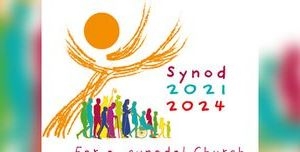
Extract from CathNews, CNA, 14 April 2024
A committee of 22 people, including two Australians, this week kicked off the writing process for the Synod on Synodality’s working document that will be the blueprint for discussions during the meeting of bishops in October. According to a statement from the General Secretariat of the Synod of Bishops on April 12, a “group of experts from five continents” is meeting at the Vatican until April 19 “with the aim of starting the reflection that will lead at a later stage to the drafting of the Instrumentum Laboris, the working document for the first session of the XVI Ordinary General Assembly of the Synod of Bishops.” The Instrumentum Laboris, Latin for “working document,” frames the discussions of the Synod of Bishops. During a synod, bishops make comments and observations on the working document and meet in small discussion groups to propose changes to the text or to suggest new texts and additional areas for consideration. To begin drafting the working document, the group of experts will meet behind closed doors to discuss the continental stage of the Synod on Synodality as a whole and analyse the seven final documents submitted by each of the regional assemblies. The committee’s analysis will “highlight tensions and priorities to be studied in depth during the October assembly”. The Vatican published the names of the 22 people who will contribute to the first stage of the writing process of this document. Among them are Perth Archbishop Timothy Costelloe SDB and Australian Professor Susan Pascoe. At the end of the weeklong meeting to begin drafting the synod working document, the Vatican will host a press conference on April 20. Once the Instrumentum Laboris is published, bishops will have months to review the document before the first assembly from October 4-29........(More) Image:the_updated_Synod_on_Synodality_logo
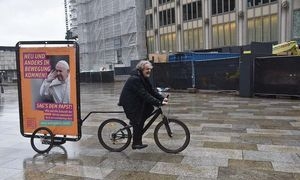
Extract from Christa Pongratz-Lippitt, The Tablet, 11 April 2023
The German synodal path initiative for church reform is continuing with its plans to establish a nationwide permanent “synodal council” in which bishops and lay Catholics will share decision-making. Despite repeated prohibitive warnings from Rome, on 4 April the German bishops’ conference announced that a 64-member “synodal committee”, consisting of 27 diocesan bishops, 27 lay members of the Central Committee of German lay Catholics and 20 elected members. will meet in Essen on 10-11 November this year and begin preparing for a “synodal council” in 2026. In January, in a letter approved by the Pope, the Vatican informed the German synodal path initiative that it did not have the competence to establish a nationwide permanent “synodal council” but the “synodal committee” to prepare for such a council has not been prohibited yet. The “synodal committee” will discuss the concept of synodality in depth so that synodal structures and a synodal culture of acting together can be developed. The rules of procedure and statutes have yet to be published and it is not known whether the committee sessions will be public or not. On principle, the German bishops want to hold on to the plans to establish new synodal bodies. “The ‘synodal council’ which is to be prepared by the ‘synodal committee’ will remain within canon law,” conference president Bishop Georg Bätzing underlined in his reaction to the Vatican prohibition. Meanwhile Bishop Peter Kohlgraf of Mainz has joined a growing number of German bishops who, while they are in favour church reform, have warned against polarisation. He had voted in favour of the reform texts as the issues were “burning issues”, he recalled in a sermon in Holy Week but the whole style of the debate and the language being used was “alienating”. There was a lot of violence in the thinking, speech and actions of church groups at the moment – both on the right and on the left, he said. Violence had many faces and was occurring daily in the Church.......(More). Photo: Aux Bishop Cologne activating synodal partic platform Cologne, Horst Galuschka dpa Alamy 20230411

Extract from CathNews NZ, The Pillar, Wall Street Journal, 13 March 2023
German Catholic Bishops approved the blessing of same-sex relationships during their final synod assembly, defying the Vatican’s stance against such blessings. The five-page document, “Blessing ceremonies for couples who love each other,” was passed by 176 votes for, 14 against, and 12 abstentions at its second reading. The vote formally adopts it as a resolution of the synodal way. The document calls on bishops to “officially allow blessing ceremonies in their dioceses for couples who love each other but to whom sacramental marriage is not accessible or who do not see themselves at a point of entering into a sacramental marriage.” “This also applies to same-sex couples on the basis of a re-evaluation of homosexuality as a norm variant of human sexuality,” it explains. The German bishops supported the text by 38 votes in favour, 9 against, and 11 abstentions. Maria 1.0, an organisation that seeks to support traditional Catholic doctrine, tweeted after the vote: “Only nine German bishops vote against a blessing form for homosexual couples. Eleven bishops appear to have no opinion and abstain. Incomprehensible.” The move comes after months of discussions as part of the German Catholic Church’s “Synodal Way,” a process of reform that aims to address issues such as clerical celibacy, women’s roles in the church, and homosexuality. Document defies the Vatican. However, the document appears to defy a 2021 Vatican declaration that “the Church does not have, and cannot have, the power to bless unions of persons of the same sex”. During the debate, Bishop Gregor Maria Franz Hanke of Eichstätt warned against the proposed move, saying that he hoped “this step is not going to tear us apart the way the Anglican Church finds itself torn apart”.....(More). Photo: German-Synodal-Way CathNews NZ 20230313
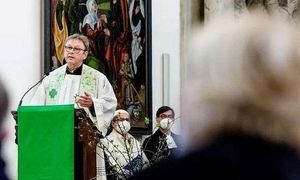
The Catholic bishops and laity of Germany have completed three years of work, ratifying proposals for Church reform that must now be discussed with the Vatican
Limited Extract from Delphine Nerbollier, Berlin, Subscription Journal La Croix International, 13 March 2023
The Catholic Church in Germany has finally completed its highly publicized "Synodal Path" (der Synodale Weg), a project for ecclesial reform that the bishops launched three years ago together with lay leaders in response to the county's clergy sex abuse crisis. The fifth and final assembly of the Synodal Path was brought to conclusion on a positive note last Saturday in Frankfurt and the sense of relief was palpable. It is true that the debates were sometimes heated and, more surprisingly, that Bishop Georg Bätzing, president of the German Bishops Conference (DBK) had to warn some of his episcopal confreres not to make any last-minute attempts to block proposals. But, in the end, almost all the texts presented were approved by the synodal assembly and by two-thirds of the bishops. More attention to same-sex couples and transgender people One of the key measures concerns blessings for "committed couples", whether they are divorced-and-remarried or of the same sex. Disciplinary sanctions against pastoral workers who organize such celebrations may now be lifted. While the practice is already taking place in some dioceses in Germany and will remain at the discretion of the bishops, it could soon become a reality throughout the country. 81% of the bishops approved this measure. Another central measure, long applauded by the participants, is that the Catholic Church in Germany says it wants to give more attention to intersex and transsexual people. Following the example of the diocese of Freiburg, a pioneer in this field, it will now be possible to omit the corresponding entry in the baptismal register or to use the word "miscellaneous" for children whose gender identity is unclear. Transgender Catholics will also be able to change their marital status and first names in the baptismal register. A text in favor of women deacons The synodal assembly also approved texts that require Pope Francis' approval. Among other things, the Synodal Path asks him to allow women to preach at Eucharistic celebrations and to re-examine the link between ministerial functions and the obligation of celibacy. At the end of an emotional final debate on Saturday, the participants also approved a text in favor of women deacons and called on the German bishops to push the issue in Rome. The question of ordaining women priests, however, was postponed at the request of some bishops. "The diaconate for women is long overdue," said Bishop Gebhard Fürst of Rottenburg-Stuttgart. He cited the Synod of Würzburg, which had requested it already in 1974..........(Source). Photo: Karl Juesten St Mary's Church Berlin, JENS SCHLUETER AFP, La Croix Int 20230313

Extracts from Sr Bernadette Reis fsp, Catholic Outlook, Vatican News, 8 March 2023
Women speak on the sidelines of the Asian Continental Assembly on Synodality, assuring their peers that, ‘In the synodal process, we are with you and our voices should be heard.’ Twelve women are participating in the Asian Continental Assembly on Synodality. In addition to the Presidents of the Episcopal Conferences who are members of the Federation of Asian Bishops’ Conferences (FABC), each Episcopal Conference is represented by two delegates. These women have been chosen as delegates to represent their countries. In a video interview with Vatican News, each of these women expressed the particular message or people they are representing, and whose voices they wish to be heard in the Assembly. Rita Roseline Costa represents Bangladesh. Her message is for other women who live in Bangladesh. “I want to say that in the synodal process, we are with you. And our voices should be heard. Please consider our voices and we are not excluded.” Rita concluded, saying, “Together, we can make differences in the world.” Joy Candelario represents the Philippines. “I bring with me all the lay people who are involved actively in evangelization.” She also brings, “all those voices that we have heard in the synodal process from the parishes, dioceses, and regions in the Philippines – a lot of voices that were disturbing, that were touching us, voices that are wounded in many ways and have not been heard fully in the Church.” Joy’s hope is that all of these people might one day participate, that “they will have a space that they can belong to us because they are Church too.” Anna Amandus represents Malaysia/Singapore/Brunei and brings the “voice of couples who have been married for more than five years but still do not have children. Anna is hopeful that couples experiencing this might receive a “fruitful message” from the Assembly. She also hopes that these couples “will not give up,” that they will continue to “have faith in God that no matter what.” Anna concludes, “we believe that there is always a reason.”............Estela Padilla, from the Philippines, is part of the Discernment and Writing Team and a member of the FABC secretariat. “I feel the voice of the indigenous peoples are missing,” Estela said. “Sixty percent of the indigenous people of the world live in Asia. We are talking about them but they have not spoken. Others are speaking for them. The indigenous people, especially the woman, are the carriers of the indigenous cultures we have. As mothers, they pass on their culture to their children. They are carriers of indigenous cultures where the most wisdom is to be found. In addition, most of the indigenous healers are women. It would have been nice to hear their voice.”.....(More). Photo:Lay women Lay women speak Asian Continental Assembly Synod, Cath Outlook Youtube 202300308

Limited Extract from America, The Jesuit Review, 2 March 2023
In January, America published an article I wrote on the theme of inclusion in the life of the church. Since that time, the positions I presented have received both substantial support and significant opposition. The majority of those criticizing my article focused on its treatment of the exclusion of those who are divorced and remarried and members of the L.G.B.T. communities from the Eucharist. Criticisms included the assertion that my article challenged an ancient teaching of the church, failed to give due attention to the call to holiness, abandoned any sense of sin in the sexual realm and failed to highlight the essential nature of conversion. Perhaps most consistently, the criticism stated that exclusion from the Eucharist is essentially a doctrinal rather than a pastoral question. I seek in this article to wrestle with some of these criticisms so that I might contribute to the ongoing dialogue on this sensitive question—which will no doubt continue to be discussed throughout the synodal process. Specifically, I seek here to develop more fully than I did in my initial article some important related questions, namely on the nature of conversion in the moral life of the disciple, the call to holiness, the role of sin, the sacrament of penance, the history of the categorical doctrine of exclusion for sexual sins and the relationship between moral doctrine and pastoral theology. The report of the U.S. Conference of Catholic Bishops on the synodal dialogues held in our nation last year pointed to the profound sadness of many, if not most of the people of God about the broad exclusion from the Eucharist of so many striving Catholics who are barred from Communion because they are divorced and remarried or L.G.B.T. In January, I proposed that three foundational principles of Catholic teaching invited a re-examination of the church’s practice in this area. The first is Pope Francis’ image of the church as a field hospital, which points to the reality that we are all wounded by sin and all equally in need of God’s grace and healing.....(Source). Photo: Cardinal Robert W. McElroy at The Immaculata Catholic Church, 2022, CNS David Maung, America TJR, 20230302
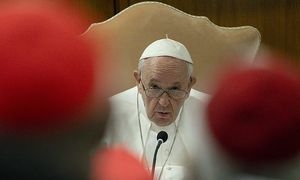
Pope Francis has opened the door for real church reform, but hasn't stepped through
Limited Extract from BY RICHARD GAILLARDETZ America, The Jesuit Review, 28 February 2023
Editor's Note: Some elements of this commentary are drawn from a lecture the author gave in Rome to the John Paul II Pontifical Theological Institute for Marriage and Family Sciences on Oct. 21, 2022. The full text of that lecture will appear in the March issue of Theological Studies.
The 10th anniversary of the election of Pope Francis offers an opportunity to consider the contributions and missteps of this remarkable pontificate. As a comprehensive assessment is impossible, I will consider the related contributions of this pontificate to the theology, structure, and exercise of ministry and authority. The theology, structure, and exercise of ministry From the beginning of his pontificate Francis has emphasized the priority of Christian baptism. In a little noted 2016 letter to Cardinal Marc Ouellet in the cardinal's role as president of the Pontifical Commission for Latin America, the pope contended that "looking at the People of God is remembering that we all enter the Church as lay people." For the pope, "laicity" is not a negative term, identifying the non-ordained; rather it identifies the fundamental missionary calling conferred upon all of us in baptism: Our first and fundamental consecration is rooted in our Baptism. No one has been baptized a priest or a bishop. They baptized us as lay people and it is the indelible sign that no one can ever erase. It does us good to remember that the Church is not an elite of priests, of consecrated men, of bishops, but that everyone forms the faithful Holy People of God. Francis has argued for the priority of baptism as an antidote to the association of holy orders with the conferral of power, a contributing factor to the evils of clericalism. In much of his writing the pope has moved away from the rigid lay-clergy binary encouraged by his predecessors and toward a more expansive and relational understanding of public ministry in the church. This shift in theology has been matched by a few tentative institutional adjustments. Francis has opened the instituted ministries of lector and acolyte to both men and women while also establishing a new instituted ministry of catechist. These overlooked papal initiatives have provided a more formal status and ritual expression to a range of ministries open to the laity. The pope has also determined that non-ordained religious brothers could be appointed to positions of leadership, including those of provincial and even superior general, in communities that include priests. Were these papal initiatives to be fully and creatively implemented, as they have yet to be, they could go a long way toward deconstructing the strict lay-clergy binary that has hobbled the church for centuries.....(Source) Photo: Pope Francis baptizes at Sistine Chapel, CNS Vatican Media, NCR Online, 202302228

Catholics For Renewal, 27 February 2023
The full C4R submission to ALRC is available on their website HERE.
A brief overview of the submission was recently published in the Catholics For Renewal February Newsletter. Subscription to Catholics For Reneal Newsletters is free, by sending the word SUBSCRIBE in the Subject line of an email to Catholics For Renewal HERE. All Newsletters include options to unsubscribe, or to forward the Newsletter to others.

Extract from Robert W McElroy, Americam The Jesuit Review, 2 March 2023
In January, America published an article I wrote on the theme of inclusion in the life of the church. Since that time, the positions I presented have received both substantial support and significant opposition. The majority of those criticizing my article focused on its treatment of the exclusion of those who are divorced and remarried and members of the L.G.B.T. communities from the Eucharist. Criticisms included the assertion that my article challenged an ancient teaching of the church, failed to give due attention to the call to holiness, abandoned any sense of sin in the sexual realm and failed to highlight the essential nature of conversion. Perhaps most consistently, the criticism stated that exclusion from the Eucharist is essentially a doctrinal rather than a pastoral question. I seek in this article to wrestle with some of these criticisms so that I might contribute to the ongoing dialogue on this sensitive question—which will no doubt continue to be discussed throughout the synodal process. Specifically, I seek here to develop more fully than I did in my initial article some important related questions, namely on the nature of conversion in the moral life of the disciple, the call to holiness, the role of sin, the sacrament of penance, the history of the categorical doctrine of exclusion for sexual sins and the relationship between moral doctrine and pastoral theology. The report of the U.S. Conference of Catholic Bishops on the synodal dialogues held in our nation last year pointed to the profound sadness of many, if not most of the people of God about the broad exclusion from the Eucharist of so many striving Catholics who are barred from Communion because they are divorced and remarried or L.G.B.T. While Catholic teaching has an essential role in moral decision-making, it is conscience that has the privileged place. As Pope Francis has stated, the church’s role is to form consciences, not replace them................(more). Image: Cardinal Robert W. McElroy 2022, CNS David Maung. Amerca TJR 20230302
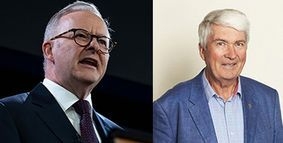
Extract from CathNews, SkyNews, 23 February 2023
Mr Albanese told the National Press Club yesterday that he was not being prescriptive about his proposed change to the Constitution, which says the Voice “may make representations to Parliament and the executive government on matters relating to Aboriginal and Torres Strait Islander peoples” and wanted to bring as many people as possible on the “journey” to constitutional recognition. Removing “executive government” from the constitutional amendment could appease those who want the Voice to succeed but who argue that particular reference will open it up to legal challenges and add confusion to the referendum. It was also interpreted by a member of the Government’s referendum working group, who did not want to be named, as an important signal to Peter Dutton that the Prime Minister was willing to make concessions to get the Liberal Party on side. Jesuit priest and human rights lawyer Fr Frank Brennan said he was “heartened” by Mr Albanese’s comments and “an increased openness to having those words (in the constitutional amendment) closely scrutinised”. He said it should be a Voice to Parliament “full stop” and not a Voice to Parliament and executive government. “I’m strongly of the view that, of course, as Aboriginal leaders like Noel Pearson have said, we want a place at the table in dealing with executive government. My only issue is that that should be done by the Parliament and not through the Constitution,” Fr Brennan told Sky News.....(More). Photo: Anthony Albanese Frank Brennan SJ, Facebook, file photo, CathNews 20230223
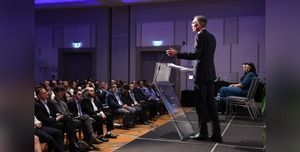
Extract from CathNews, The Guardian, 23 February 2023
New South Wales Premier Dominic Perrottet has promised not to ban prayer or preaching as part of laws to be introduced in the next Parliament to end so-called gay conversion therapy. Speaking to a crowd of mixed-faith leaders and voters in Parramatta last night, Mr Perrottet vowed to take a “balanced approach” and protect religious freedoms as the Government cracks down on harmful practices. “We will not ban prayer, we will not ban preaching. That is fundamental to freedom of religion,” he told the forum of about 150 people. “We can do both.” Some religious leaders are concerned that any legislation might place limitations on what can be preached about marriage, human sexuality and gender. But Mr Perrottet assured Monica Doumit of the Sydney Archdiocese that it would not stop someone who “wants to live in accordance with their religious beliefs seeking prayer-based support”. He also announced the NSW Government would put $10 million towards securing places of worship including religious schools and communities facing “demonstrated” security risks. Money could be put towards measures including security services, lighting, fencing, CCTV and staff training. Leaders present from the Jewish, Christian, Hindu and Islamic communities thanked Mr Perrottet for the support, while pushing him to do more to strengthen legal protections for people of faith, including a provision to deal with the vilification of religious people.....(More). Photo: Dominic Perrottet addresses Parramatta Forum, Facebook, Dominic Perrottet, Cathnews 20230223

Extract from CathNews, Eureka Street, 23 February 2023
It was at the Melbourne Myer Music Bowl on February 24, 1973, when many of us heard a strong and joyful Aboriginal voice for the very first time. Many voices, in fact, writes Fr Brian McCoy SJ. Source: Eureka Street. The event, part of the 40th International Eucharistic Congress, was titled the Australian Aboriginal Liturgy and it involved a very large number of Aboriginal people, particularly from the Kimberley of Western Australia and the Northern Territory, who had come down to participate in the event. This group numbered more than 150 adults, teenagers and a children’s choir. This liturgy was, for many of us who were present, the first time we had witnessed and experienced Aboriginal people expressing their Catholic faith in ways that were culturally different from our own but very significant to them. The ancient Catholic liturgy took on a new dimension of life and energy as people sang in their own language, mimed the Word of the Gospel and danced. This first public and national Aboriginal Liturgy was highly significant. It was the first attempt by the Church in Australia to re-shape the ancient Catholic ritual of the Mass, which itself had already changed and adapted in the light of Vatican II in the late 1960s. In this case, the attempt was in the light of the faith experiences by those belonging to an even more ancient culture. Or, more accurately, Aboriginal cultures. It was no easy task......(More). Photo: Australian Aboriginal Liturgy 40th International Eucharistic Congress 1973, MDHC Archd Melbourne, CathNews 20230223

Extract from CathNews, The Australian, 22 February 2023
A coalition of religious organisations has sent a joint letter to MPs warning that future generations of Australians “will not forgive us” if the Indigenous Voice to Parliament fails at the referendum. The open letter, penned by organisations including the Catholic, Uniting and Anglican churches, the Australian National Council of Imams and the Executive Council of Australian Jewry, used the week of action for the Voice to call on parliamentarians “to find ways to collaborate constructively across political divides”. “As leaders of Australia’s major religious and ethno-religious organisations, we call on Australia’s political leaders and all federal parliamentarians to support the Voice, called for by First Nations Australians through the Uluru Statement from the Heart,” the letter says. "Future generations of Australians will not forgive us if we fail to grasp the historical moment, and ‘advance Australia’ further along the path of justice.” It follows Opposition Leader Peter Dutton and legal affairs spokesman Julian Leeser signalling they expected the Voice to fail. “At this point in time, we don’t think that the referendum is on track for success,” Mr Leeser said, pointing to concerns over the wording of the constitutional amendment and the lack of detail on how the body would function. The letter, also signed by Sikh, Hindu and Buddhist leaders, said that if their coalition could overcome differences in religion and tradition, political parties should also be able to come together to support the Voice. However, the letter also urges the Government to release any additional information that it could to win over the support of the Liberals and undecided Australians.....(More) Image: Religious Leaders Unite urge Support Voice CathNews 20230222
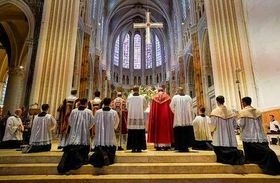
Pope tightens restrictions on Tridentine Mass
New rescript ordered by Pope Francis requires bishops around the world to obtain Vatican approval before allowing celebrations of pre-Vatican II liturgy
Limited Extract from Loup Besmond de Senneville, Vatican City, Subscription journal La Croix International 22 February 2023
After several weeks of rumors that Pope Francis was to further restrict using the Tridentine Mass, the Vatican has now issued a new text clarifying that diocesan bishops must get its approval before granting permission for liturgical celebrations in the pre-Vatican II form. The Dicastery for Divine Worship and the Discipline of the Sacraments (DDWDS) published a rescript on Tuesday that clarifies the Holy See's strict control over those who wish to celebrate Mass as it existed before the 1969 reform that was mandated by the Second Vatican Council (1962-65). The rescript – which was ordered to be published by Pope Francis and signed by DDWDS prefect Cardinal Arthur Roche – stipulates that any bishop wishing to authorize a priest ordained after July 2021 to celebrate according to the so-called Old Rite must now.......(Source) Image:Tridentine Rite in Chartres, 2022, Frederic Petry, Hans Lucas via Reuters, La Croix 20230224
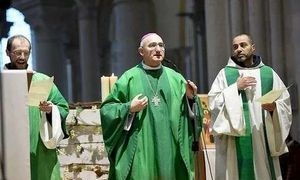
Senior bishop in France says the pope is inviting us to shun any temptation to judge and, instead, listen to people where they are
Limited Extract from Hervé Giraud, Subscription journal La Croix International 20 February 2023
Since the very beginning of his papal ministry, Pope Francis has spoken out repeatedly on the issue of homosexuality. "If someone is gay and is searching for the Lord and has good will, then who am I to judge him?" he replied to a journalist in 2013. The pope expanded on his thoughts three years later in his apostolic exhortation Amoris laetitia, following two assemblies the Synod of Bishops dedicated to marriage and the family. We discussed the situation of families whose members include persons who experience same-sex attraction, a situation not easy either for parents or for children. We would like before all else to reaffirm that every person, regardless of sexual orientation, ought to be respected in his or her dignity and treated with consideration, while 'every sign of unjust discrimination' is to be carefully avoided, particularly any form of aggression and violence. The pope then made it clear in an interview in October 2020 that "homosexual people have a right to be in a family". He said homosexual "are children of God and have a right to a family". "Nobody should be thrown out or be made miserable over it. What we have to create is a civil union law (convivencia civil). That way they are legally covered," he said. And just a few weeks ago, the 86-year-old pope once again addressed this topic by calling for the repeal of discriminatory laws. He did so in an interview.......(Source). Photo: Archbishop Herve Giraud of Sens-Auxerre, Jereme Fulleringer La Nontagne, Maxppp. La Croix, 20220220

Extract from CathNews NZ, La Croix International, NZCBC 16 February 2023
Despite some international media saying the Oceania Continent Synod response was released recently, CathNews has confirmed it has not been. Recently released was the report of the Federation of Catholic Bishops’ of Oceania Conference (FCBOC). In January, a church group of about twenty representatives from across the Pacific gathered in Melbourne to synthesise the responses from around what the Vatican calls the “Oceania Continent”; the countries of the South Pacific, including Australia. The group was tasked to bring Oceania’s unique perspective to bear on the global synodal process, saying their goal was to look at the global event “through the eyes” of the people of ‘the continent’. CathNews was told the Oceania Continent Synod document was discussed at the recent FCBOC meeting in Suva, but when, through a third party, CathNews asked when the New Zealand Church might see the synodal document she was told it could be published ‘anytime between now and some weeks’. Also at the FCBOC meeting was Sr Nathalie Becquart, undersecretary of the Synod of Bishops. She was visiting from Rome. “It is clear that the Church is unfolding in a local culture, whereas we often have a very Eurocentric vision of the Church,” said Becquart. She was particularly taken by the youthful expression of Church in the South Pacific, commenting it is very different from the 1,500 or 2,000-year-old traditions elsewhere in the world. “One of the requests was to bring out an Oceanian theology, a sign of the need to anchor the Church in local realities… and the indigenous populations are very present, with celebrations marked by a great sense of inculturation.”.........(More) Photo:Oceania Continent Synod CathNews NZ 20230216
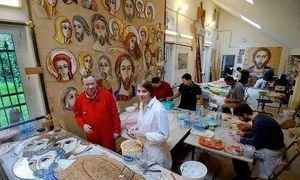
The handling of the Marko Rupnik case shows the difficulty Rome has in analyzing the phenomenon of having a "hold" over someone when it concerns an adult
Limited Extract from Loup Besmond de Senneville, Subscription journal La Croix International 17 February 2023
Numerous messages were posted on Facebook at the end of December 2022, a few days after several Italian websites and newspapers revealed what quickly became the Rupnik affair, named after the Slovenian Jesuit mosaicist accused by several nuns of touching and rape, against a background of a psycho-spiritual hold. After having sexually assaulted them, the priest then heard their confessions. These are the events for which the Jesuits must close an internal investigation this Friday, February 17. On social medias, the debate surrounding these accusations rages among Italian journalists. One explains: "In fact, if there had been no consent, there would have been no confession and absolution of the access consenting, since they were adults. The person speaking is not just anyone: he is a regular and valued contributor to L'Osservatore Romano, the official Vatican newspaper. This way of looking at adult abuse is far from limited to Rome. While sexual abuse of minors or "vulnerable adults" - a vague category - is one of the "most serious crimes" and is therefore dealt with by the dicastery for the.......(Source). Photo: Father Marko Rupnik studio Rome 2007, Vandeville Eric, ABC, Andia_Fr, La Croix 20220217.

Extract from CathNews NZ, Catholic News Agency 16 February 2023
Cardinal Gérald Cyprien Lacroix of Quebec has stated that pastors should help their people grow in a relationship with Jesus as shepherds, not be their bosses. Lacroix was speaking at a press conference previewing a three-day Vatican meeting on how to improve collaboration among laypeople, priests and bishops. Lacroix wants priests to recognise that laypeople are not there at their service. “We are there together at the service of the Church,” he said. Lacroix said priests should invite laypeople into parish activities and programmes, but they should also ask how they can support parishioners where they already are. He said that people’s ordinary everyday lives is the stuff of holiness, and he wants priests to support them in their lives. “What is our role as priests and bishops in this beautiful adventure?” he asked. “Well, our main role is to be pastors. We’re not managers; we’re not the boss: We’re pastors, shepherds.” Lacroix stated that the Church needs “better formation, better awareness and a lot of work” to bring his vision to fruition.....(More). Photo: cardinal-LaCroix, CathNews NZ 20230216
Extract from Massimo Faggioli, Commonweal, 16 February 2023
Pope Francis has given countless interviews, but over the past few years he has rarely spoken to the public at large about the ongoing synodal process that he initiated in 2021. One exception is the January 25 interview he gave to the Associated Press, in which he talked about the Synodal Path in Germany. He didn’t delve into the specifics of the calls for reform the German bishops are addressing, such as the teaching on sexuality, new roles for women in Church leadership and ministry, or new structures of governance. The pope said that while dialogue in the Church is good, “the German experience does not help.” He continued: “Here the danger is that something very, very ideological trickles in. When ideology gets involved in Church processes, the Holy Spirit goes home, because ideology overcomes the Holy Spirit.” Francis added: “We must be patient, dialogue and accompany this people on the real synodal path and help this more elitist path so that it does not end badly in some way, but so is also integrated into the Church.” This wasn’t Rome’s first warning to the German synod. Indeed, it’s just the latest round of pointed and polemical exchanges between the Vatican on one side and the president of the German bishops’ conference and the leaders of the Synodal Path on the other. Church and synodal leaders in Germany are facing opposition from a small group of five German bishops voicing the resistance of a minority of German Catholics to the structure and results of the synodal process so far. Tensions between Rome and the German synod reached a recent high point with a January letter from Secretary of State Cardinal Pietro Parolin, Cardinal Marc Ouellet (prefect of the dicastery for the bishops), and Cardinal Luis Ladaria (prefect of the dicastery for the doctrine of the faith) — and approved “in forma specifica” by Francis — in which they told the German Synodal Path that they do not have the competence to establish a nationwide permanent “synodal council.” The interview and the letter reflect Pope Francis’s anti-elitist social, political, and ecclesiological culture. There have been previous examples. Visiting the University of Roma Tre in 2017, he excoriated so-called elite education while advocating popular education. In the 2018 exhortation Gaudete et Exsultate, he called Gnostic and Pelagian religious elites “enemies of holiness.” In a 2018 book interview, he emphasized the importance of connection to a real, concrete people. Without those connections, the pope said, a sin can arise that “Satan, our enemy, likes so much: the sin of the elite…. The elite do not know what it means to live among the people. And when I speak of elite, I do not mean a social class: I speak of an attitude of the soul.” The interview and the letter reflect Pope Francis’s anti-elitist social, political, and ecclesiological culture. From the beginning of Francis’s papacy, there’s been a misperception that his constant criticism of clerical elites equates to a liberal ecclesiology paving the way for more democratic Church governance. This misunderstanding is evident in some of the critical reactions in Rome to the ongoing synodal process—even though it’s far too early to tell what the result of the process will be, and what Francis and the bishops will make of it. Yet the pope’s criticism of the German synod as “elitist” is striking for three reasons........ (More)
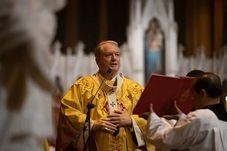
Extract from Adam Wesselinoff, Catholic Weekly, 14 February 2023
The Catholic Archbishop of Sydney, Anthony Fisher OP, Sydney Anglican Archbishop Kanishka Raffel and Greek Orthodox Archbishop Makarios Griniezakis have joined other senior religious leaders in a general revolt against the Federal Government’s proposed religious educational reforms. In a letter to Attorney-General Mark Dreyfus, Archbishop Fisher and his co-signatories convey their “deep disappointment” with the proposed reforms in the Australian Law Reform Commission’s consultation paper on religious educational institutions and anti-discrimination laws. The religious leaders initially wrote to Mr Dreyfus in 8 June 2022 and welcomed the ALRC’s reforms, “in no small measure” because of Labor’s commitment to allow religious schools to preference people of their own faith in the selection of staff. But the new letter, dated 13 February, says the proposals in the consultation paper “place severe limits on the application of this principle … neither expressly or impliedly called for in the [government’s] terms of reference themselves”. “The ALRC is proposing to greatly restrict this freedom by requiring religious schools to employ teachers who may not share or support the religious beliefs of the organisation, and whose employment can only be terminated where they “actively undermine” the religious ethos of the school,” the letter reads. The signatories argue that the ALRC proposals will “introduce a new test into employment law, whose application and meaning are far from certain”. “In any given case, the onus would be on the school to prove that it satisfied the test. “This would greatly expand the scope for future litigation, and would thus have a deterrent effect on any religious school contemplating engaging a candidate for employment who professes the same religion as the school, in preference to other candidates.” Alongside Archbishop Fisher and his Anglican and Orthodox counterparts, Catholic bishops Peter Comensoli, Archbishop of Melbourne, and Maronite Bishop Antoine-Charbel Tarabay also signed. The letter also attracted signatures from the National Imams Council, Islamic Council of Victoria and Islamic Schools Association of Australia, and from Peter Wertheim AM, the co-CEO of the Executive Council of Australian Jewry. Leaders of the Seventh-day Adventists, Presbyterians, Hillsong, the Baptists, the Australian Christian Churches, Copts, Assyrian Church of the East, Australian Christian Lobby, NSW Council of Churches and other groups joined the most significant revolt of religious groups to a government proposal in recent history.........(More) Photo: Archbishop Fisher, Giovanni Portelli, Catholic Weekly 20230214

Extract from CathNews NZ, 9 February 2023
Dozens of Oceania’s Catholic bishops, including four from New Zealand, are in Fiji on a shared mission. The Federation of Catholic Bishops Conferences of Oceania gather together every four years to reflect on and pray about their shared mission in the region. Among those present are representatives from bishops conferences in Australia, Papua New Guinea/Solomon Islands and the Pacific Islands, as well as New Zealand. Completing their joint response to the working document for the continental stage for the global Synod of Bishops is an important part of the week’s work. So is the theme “Save the Ocean to Save Mother Earth”; it is included in the Continental phase of the Synod on Synodality. The work programme Cardinal Michael Czerny, SJ, gave the conference’s opening address on Sunday, highlighting the its twin themes: climate change and synodality. “Climate change falls under ‘care for our common home,’ which here also means care for the ocean,” he said. He recognised the many tensions that affect the region – including unsustainable exploitation of ocean resources, human trafficking, migration and geo-political rivalries. In response, the Church proposes “integral human development,” he said. The Church must “enrich the present with good” by accompanying people. This must begin with listening to them, he stressed. The synodal process must begin with “real conversion,” including admitting “our personal and collective complicity in the degradation of our environment, and the dire consequences of such on poor and marginalised communities.” But the work being done in Oceania is not being done in isolation, he added. “In this voyage of discovery and transformation, you are not out on the ocean alone. Pope Francis, the Roman Curia, the Synod Secretariat, the Dicastery for Promoting Integral Human Development are with you.” First and foremost, their work involves “recognising and supporting the work that the Bishops do for the Gospel and the Church”, plus helping ensure “peoples may have abundant life in Christ”, he explained. During the week, each of the four Episcopal Conferences has shown a video focusing on the synodal journey undertaken in their territories and have seen an additional video expressing the ocean’s voice. They have also seen firsthand the effects of changes to the climate and environment..............Becoming more synodal To help the bishops in their quest for synodality, Vatican speaker, Sr Nathalie Becquart provided a presentation. She compared synodality to a person who develops over time, but remains the person he or she is. Synodality can only be learned together, she explained. It is inherent in the Church’s identity – therefore the topic of the current synod is actually the Church’s identity.....(More) Photo: CathNews NZ 20230209
Extract from Thomas Reese SJ, America,The Jesuit Review, CathNews NZ, 9 February 2023
I always tried to give Cardinal George Pell the benefit of the doubt, which is why it is so disappointing to find out that the Australian prelate, who died January 10, was the author of a memorandum attacking Pope Francis. The memo, published on a Vatican blog last March under the pseudonym “Demos,” was circulated to members of the College of Cardinals in anticipation of the next conclave. After the cardinal’s death it was revealed as Pell’s work by the Italian journalist Sandro Magister. Pell first came on my radar screen when Francis put him in charge of Vatican finances. My friends Down Under, where he had been archbishop of Melbourne and Sydney, were happy to see him go to Rome because he had been more pugnacious than pastoral. A former Australian rules football player, he was always ready for a brawl with anyone who opposed him. Although these are not the qualities you look for in a bishop, they were exactly the qualities needed for someone reforming Vatican finances. The pope needed someone who would not be intimidated by high-ranking clerics with fancy titles, someone willing to take on an entrenched bureaucracy......(More)
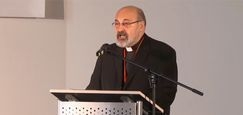
Monsignor Tomáš Halík’s address at the European Continental Assembly
Limited extracts from Monsignor Tomáš Halík,Catholic Outlook, Diocese of Parramatta,7 February 2023
At the beginning of their history, when Christians were asked what was new about their practice, whether it was a new religion or a new philosophy, they answered: it is the way. It is the way of following the one who said: I am the Way. Christians have constantly returned to this vision throughout history, especially in times of crisis. The task of the World Synod of Bishops is anamnesis. It is to be reminded, to revive and deepen the dynamic character of Christianity. Christianity was the way in the beginning, and it is to be the way now and forever. The Church as a communion of pilgrims is a living organism, which means always to be open, transforming and evolving. Synodality, a common journey (syn hodos), means a constant openness to the Spirit of God, through whom the risen, living Christ lives and works in the Church. The synod is an opportunity to listen together to what the Spirit is saying to the churches today. In the coming days, we are to reflect together on the first fruits of the journey to revive the synodal character of the Church on our continent. It is a short portion of a long journey. This small but important fragment of the historical experience of European Christianity must be placed in a wider context, in the colourful mosaic of the global Christianity of the future. We have to say clearly and comprehensibly what European Christianity today wants and can do to respond to the joys and hopes, the grief and anguish of our whole planet – this planet which is interconnected today in many ways and at the same time is divided and globally threatened in many ways................If the Church is to contribute to the transformation of the world, it must itself be permanently transformed: it must be “ecclesia semper reformanda“. If reform, a change of form, for example of certain institutional structures, is to bear good fruit, it must be preceded and accompanied by a revitalization of the “circulatory system” of the body of the Church – and that is spirituality. It is not possible to focus only on the individual organs and neglect to take care of what unites them and what infuses them with the Spirit and life. Many “fishers of men” today have similar feelings to the Galilean fishermen on the shores of Lake Gennesaret when they first encountered Jesus: “We have empty hands and empty nets, we have worked all night and caught nothing.” In many countries of Europe, churches, monasteries and seminaries are empty or half-empty. Jesus tells us the same thing he told the exhausted fishermen: Try again, go to the deep. To try again is not to repeat old mistakes. It takes perseverance and courage to leave the shallows and go to the deep.....(Source). IMAGE: Monsignor Tomas Halik Czech Republic, Council European Bishops Conferences, YouTube CO, 20230207
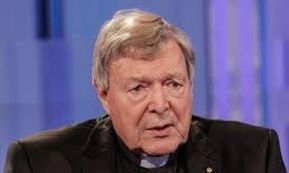
A parting salvo raises questions for the Australian Church
Will
the Catholic hierarchy embrace the legacy of the late Cardinal George
Pell or work more determinedly for a collaborative and co-responsible
Church?
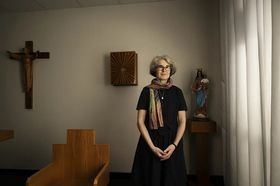
Extract from Anna Patty, The Age, 4 February 2023
The most powerful woman in the Vatican, French nun Nathalie Becquart, accepts that women have hit a stained glass ceiling in the church. But the former marketing and advertising consultant doesn’t feel limited by the Catholic Church’s rigid position on the ordination of women and said she has found a fulfilling leadership path around it. In December, she was named on the BBC list of the 100 most inspiring and influential women in the world. Speaking in Sydney on Friday, she said she is on a global mission to bring the Pope’s decision-making process closer to the laity. That process involves listening to what Australian Catholics have to say about the big decisions the church has to make about its future and seeking a consensus. “I am here, ready to listen, to learn more about the reality of the church here,” she said. “What is very important for me is the Catholic Church has to speak the language of the people.” Becquart, 54, acknowledges that women’s ordination into the priesthood is not up for negotiation. At this moment, at the Vatican and from the point of view of the official teaching of the church, it is closed,” she said. But as the Pope’s right-hand woman, as the undersecretary of the Synod of Bishops, she believes there are other ways for females to play a bigger role in the church. “There is a strong call today for more women in leadership, more women’s participation, especially in the decision-making process,” Becquart said. Becquart says there is a need to rebuild trust following the child sex abuse crisis but said it will be a long process. “We are more and more aware in many countries that the church has failed because there have been abuses and cover ups,” she said. ......(Source) Photo:Sr Nathalie Becquart most powerful woman in the Vatican, Louise Kennerley, The Age 20230204
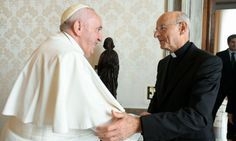
Extract from Paul Collins, Pearls & Irritations, John Menadue website 3 Feb. 2023
Last Monday’s Four Corners exposé on Sydney’s Opus Dei (OD) schools was disappointing. The programme lacked a broader context. Sure, we learned that according to some ex-students and parents the schools weren’t woke, and that some teachers touted particularly silly assertions about pornography and holes in the brain, virginity and sticky tape, and masturbation as a “mental disorder”. There were more serious allegations, such as opposition to the cancer-preventing HPV vaccine, widespread homophobia and targeting students to join OD. But we learned next-to-nothing about the organisation behind the schools, except for a reference to that particularly silly novel and movie, The Da Vinci Code. While Opus Dei (meaning “work of God”) is obsessively secretive, there’s a lot of information available. I’ve written detailed accounts of OD in three books, including one published by the ABC in 2004, Between the Rock and a Hard Place (pp 192-202). OD statistics are publicly available: in 2021 the reliable website catholic-hierarchy.org reported that worldwide membership comprised 2115 priests and 93,510 laypeople. In Australia there are 20 priests (including Sydney Auxiliary-Bishop Richard Umbers) and 600-700 laypeople. Most priests are in Sydney, including Warrane College at UNSW; OD also staffs West Melbourne parish. Founded in October 1928 in Madrid, Spain, by the priest, Josemaría Escrivá de Balaguer, the formative years of OD were during the lead-up to and during the Spanish Civil War (1936-1939). This was a terrible period for Spain and the church and OD reflects something of the violence of that time........(More). Photo:Pope Francis, Opus Dei Prelate Mnsgr Fernando Ocariz Brana, P&I 20230203
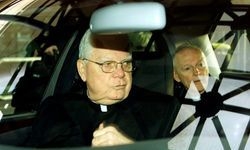
The Church’s Memory Problems
Trying to reckon with the past—and the present
Limited extract from By Massimo Faggioli, Commonweal, 30 January 2023
One month into 2023, it seems there are fewer comforting pages of Church history to balance out the increasing number of shameful ones. The past five years of Francis’s decade-long pontificate have presented no shortage of difficulties tied to the abuse crisis—from his disastrous trip to Chile in January 2018 to last month’s revelations about Jesuit artist and alleged serial abuser Marko Rupnik. The recent deaths of Benedict XVI and Cardinal George Pell have brought to light further reminders of the unpleasant past; their records on the abuse crisis and Vatican governance are, in different ways, problematic, controversial, and unlikely to be settled anytime soon. In the United States, a paradigmatic example of the difficulty of reckoning with the past—at both the individual and collective level—was the case of disgraced archbishop and one-time icon of Vatican II Catholicism Rembert Weakland, who died in August 2022. What seems like a never-ending state of crisis has also paralyzed the Church’s ability to reckon with the troubling parts of its past. It’s a good thing we’ve moved beyond the cavalier attitudes at Vatican II, when, for example, the council fathers approved this passage in Nostra Aetate, urging all “to forget the past and to work sincerely for mutual understanding and to preserve as well as to promote together for the benefit of all mankind social justice and moral welfare, as well as peace and freedom.” Now, there is no way to forget the past, since it’s always right here in front of us. Of course, the personal behavior of today’s Church leaders isn’t less holy than that of those who came before—especially those from relatively long ago. There have been worse times: the early turn of Christians from persecuted to persecutors; the age of the papal “pornocracy” at the end of the first millennium (see especially Pope John XII); the epidemic of both petty and heinous crimes committed by clergy in the early modern period; the collusion of bishops and cardinals with dictators and war criminals. But the public perception of the Church today is that it is more corrupt than in the past. The sex-abuse scandal has much to do with that, but ironically, the scandal is also another attempt by the post–Vatican II Church to grapple with the troubling things that came before—beginning with efforts by the council and then Paul VI to re-examine the past in order to advance in ecumenical and interreligious relations. An important, if incomplete and somehow apologetical attempt, was also made during the preparation and celebration of the Great Jubilee of 2000. In his own way, John Paul II tried to shape the Jubilee as a moment of conversion and examination of conscience for the Church with the speech he gave to the cardinals gathered for the extraordinary consistory of June 13, 1994: “A metanoia, that is, a discernment about the historical shortcomings and negligence of the members of the church with regard to the demands of the Gospel.” This theme was further expanded in the apostolic letter Tertio Millennio Adveniente of November 10, 1994, and led to the penitential celebration in St. Peter’s Basilica of March 12, 2000. What seems like a never-ending state of crisis has also paralyzed the Church’s ability to reckon with the troubling parts of its past. In a sense, however, that attempt at metanoia has failed—and we should remember this now that the preparation of the Jubilee of 2025 is underway..........(Source) Photo: Cardinals Bernard Law and Cardinal Theodore McCarrick, Rome, CNS, Vincenzo Pinto, Reuters, Commomweal 20230130
The pope's reaction to criticism and his denial of involvement in Marko Rupnik's case.
Limited Extract from Robert Mickens,Letter from Rome, Subscription journal La Croix International 28 January 2023
Pope Francis says that, "for the sake of tranquility", he'd rather that people not criticize him, especially if they do so behind his back. But in his latest interview, this time with the Association Press (AP), the 86-year-old Argentine Jesuit noted that criticism can also be good because "it helps one to grow and to change things". We know that Francis has sure had his share of criticism in the few weeks since Benedict XVI's death on New Year's Eve. But will that -- to use his own observation -- help him to grow? And will it lead him to changing anything? The way he has dealt with criticism during his nearly ten years as Bishop of Rome may offer some clues. One of things that impressed me early on about Francis was his ability to learn from mistakes and change his mind. The way he handled the case of a bishop in Chile who was accused of covering up an abusive priest is Exhibit A. "I have made serious mistakes" In the early months of 2018 he took the extraordinary step of apologizing to Catholics in Chile for making a big mistake in 2015. That's when he ignored the protests of the people in the small Diocese of Osorno and appointed as their spiritual leader Bishop Juan Barros, a man long accused of covering-up clerical sexual abuse of minors. In an unprecedented letter to the entire hierarchy in the South American country, he admitted to feeling "pain and shame" that people who had repeatedly told Church authorities they were sexually abused by priests "were not taken.......(Source)
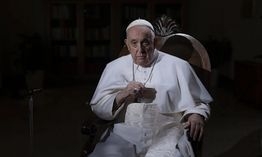
Limited extract from Rob Harris, The Age, 27 January 2023
London: Pope Francis has but one request. He’d like his critics to summon the courage and tell him to his face. The 86-year-old pontiff’s future in the role is under renewed speculation following the death of his predecessor, Benedict XVI, earlier this month, and a flood of criticism over the direction of the church under his reign. Traditionalist factions within Rome are clamouring to anoint a next-in-line. Among those to have sunk the boot into the Argentinian, who has brought a more socially progressive agenda than his recent forebears to the role, was the late Australian cardinal George Pell. In the days after his death following complications from hip replacement surgery on January 10, it was revealed that Pell was the author of a devastating anonymous memorandum listing what he considered problems in the Vatican under Francis, from its precarious finances to the pontiff’s preaching style, and issued bullet points for what a future pope should do to fix them. Francis’s comments this week, criticising laws that criminalise homosexuality as “unjust”, and calling on Catholic bishops who support the laws to welcome LGBTQ people into the church, are likely to embolden some of his critics. Pell’s long-time friend and like-minded cleric, German cardinal Gerhard Muller, this week published a book that has added to the long laundry list of complaints that traditionalists have about Francis’ papacy. A posthumous offering from Benedict, What Christianity Is, also condemned his leadership. John Allen, a leading Vatican analyst who writes for Catholic news outlet Crux, says the outpouring of new books has contributed to “impressions of a mounting civil war in the Church following the death of Benedict XVI”.....(Source). Photo: Pope Francis during interview with The Associated Press at The Vatican, AP, The Age 20230127
Limited extracta from Robert W McElroy,Subscription Journal America, The Jesuit Review, 24 January 2023
What paths is the church being called to take in the coming decades? While the synodal process already underway has just begun to reveal some of these paths, the dialogues that have taken place identify a series of challenges that the people of God must face if we are to reflect the identity of a church that is rooted in the call of Christ, the apostolic tradition and the Second Vatican Council. Many of these challenges arise from the reality that a church that is calling all women and men to find a home in the Catholic community contains structures and cultures of exclusion that alienate all too many from the church or make their journey in the Catholic faith tremendously burdensome. It is important at this stage in the synodal process for the Catholic community in the United States to deepen our dialogue about these structures and cultures of exclusion for two reasons. The first is to continue to contribute to the universal discernment on these issues, recognizing that these same questions have surfaced in many nations of the world. The second reason is the recognition that since the call to synodality is a call to continuing conversion, reforming our own structures of exclusion will require a long pilgrimage of sustained prayer, reflection, dialogue and action—all of which should begin now. Such a pilgrimage must be infused with an overpowering dedication to listen attentively to the Holy Spirit in a process of discernment, not political action. It must reflect the reality that we are part of a universal and hierarchical church that is bound together on a journey of faith and communion. It must always point to the missionary nature of the church, which looks outward in hope. Our efforts must find direction and consolation in the Eucharist and the Word of God. And they must reflect the understanding that in a church that seeks unity, renewal and reform are frequently gradual processes........The Italian synodal report stated “the church-home does not have doors that close, but a perimeter that continually widens.” We in the United States must seek a church whose doors do not close and a perimeter that continually widens if we are to have any hope of attracting the next generation to life in the church, or of being faithful to the Gospel of Jesus Christ. We must enlarge our tent. And we must do so now......(Source). Photo:Card Robert McElroy, The Immaculata Catholic Church Sept 8 2022, CNS David Maung, America TJR 20230124

Limited extract from Gerard O'Connell, America, The Jesuit Review, 20 January 2022
Pope Francis prayed the final commendation and blessing over the coffin of Cardinal George Pell in St. Peter’s Basilica on Jan. 14. The Australian cardinal, who had died on Jan. 10 at the age of 81, appears not to have expected this event to unfold. Soon after the consistory of cardinals last August, he began telling people that Pope Francis was not in good health and was suffering from a serious illness. On the day after Cardinal Pell’s death, John Allen, the editor of Crux and a close friend of the cardinal’s since his days as archbishop of Sydney, revealed that “during one of our recent exchanges, Pell speculated that Pope Francis was suffering from an undisclosed illness related to his colon surgery in 2021 and that we’d have a conclave before Christmas.” It was no secret in Rome that the Australian cardinal and several other cardinals were meeting regularly and, some said, discussing the next conclave. They shared a common unhappiness, even dislike, for the pontificate of Pope Francis and looked forward to the election of his successor, whom they hoped would be in the mold of John Paul II and Benedict XVI. It is, therefore, unsurprising that after Cardinal Pell’s death, it was revealed that the now much-talked about memorandum denouncing Pope Francis’ papacy—which had been published under a pseudonym in March 2022 on the blog of Sandro Magister, an influential and respected Italian journalist and longtime friend of the Australian churchman—was in fact written by Cardinal Pell. The cardinal’s authorship of the memo raised several questions: Why did Pell, who was unafraid to state his mind openly on any question before, opt for a pseudonym? Why did Mr. Magister decide to reveal the author’s name the day after his death?.......(Source). Photo:Cardinal Pell World Youth Day in Sydney 2008 OSV News photo Daniel Munoz, Reuters, America TJR 20230120
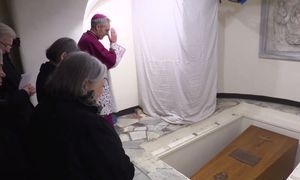
In the middle of the last century, theologians began speaking of a “Third Church.”
Limited Extract from Father William Grimm, Pearls & Irritations (First published in the Union of Catholic Asian news uca news.com January 9, 2023), 15 January 2023
The First Church grew in the Mediterranean basin from its birthplace at the eastern end of that sea to include North Africa and southern Europe. It continues a somewhat tenuous existence in the Churches of the East. The Second Church was the fruit of Christianity’s expansion into Western Europe and the Islamisation of North Africa and the Middle East. Its split into West (Catholic) and East (Orthodox) contributed to a focus on Western Europe that was not greatly disturbed by the further fracturing of unity from the sixteenth-century Reformation on. Rome (Catholic), Canterbury (Anglican), and Geneva (Reformed), all of them Western European cities, are handy symbols of an internal breakup that still left the greater Second Church intact as basically a social, philosophical, and theological European entity. For some 1,500 years, it has been the face of Christianity for the world. Now most Christians are living their faith at various points along a road to something so new it can be characterised as a Third Church. Like all major journeys into the unknown, reactions run the gamut from refusal to join the flow to excited heedless dancing down a not-always-clear road. “It was clear that something was happening within the Church that might one day remake Christianity”. Perhaps the first large-scale sign of change came with Vatican II when pictures of the gathered bishops showed faces from Africa, Asia, Latin America and Oceania. Similar faces were increasing at gatherings of Anglican and Protestant parts of Western Christianity. While forms of worship, thought, and administration remained almost totally European it was clear that something was happening within the Church that might one day remake Christianity.......(More). Photo: Pope Benedict XVI burial, Pearls & Irritations 20230115

Although two of their heroes have now died, the bishops, priests and seminarians who don't like Francis are still alive and determined to resist the pope's reforms
Limited extract from Robert Mickens, Letter from Rome. Subscription journal La Croix International, 14 January 2022
"Commentators of every school, if for different reasons, with the possible exception of Father Spadaro SJ, agree that this pontificate is a disaster in many or most respects; a catastrophe." Thus spake George Pell. The Australian cardinal, who died of a heart attack on January 10, has been described by friends and admirers as a "great leader", a "white martyr" and "courageous". And when Pell levelled that attack against Pope Francis less than a year ago in a lengthy screed that he sent to all the Church's cardinals, he showed just how courageous he really was -- by issuing it under a pseudonym. It was published last March by Italian journalist Sandro Magister who, after Pell's death, revealed that this "memorandum on the next conclave" was indeed the cardinal's handiwork. Among other things, it lambasts the Jesuit pope for causing confusion. "Previously it was: 'Roma locuta. Causa finita est.' Today it is: 'Roma loquitur. Confusio augetur'," Pell says. And he criticizes the pope for remaining silent on a number of moral issues, including the Church in Germany's push to bless same-sex unions, ordain women priests and offer communion to the divorced and remarried. The cardinal was 81 when he died and, thus, he was already disqualified from voting in a conclave to elect Francis' successor. But that did not stop him from trying to influence the election, as the purpose of the memorandum makes clear. In fact, Pell was one of the main ringleaders among those in the hierarchy who quickly soured on the Argentine pope. The big and blunt Australian led the quiet, behind-the-scenes effort to identify an electable papal successor who -- as he notes in the memorandum -- would "restore normality, restore doctrinal clarity in faith and morals, restore a proper respect for the law and ensure that the first criterion for the nomination of bishops is acceptance of the apostolic tradition".......(Source) Photo: the-clericalist-church-that-refuses-to-die, La Croix Int 20230114
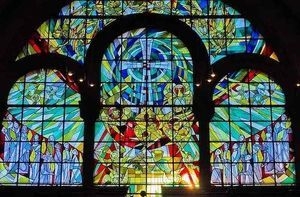
Contemporary Catholicism's emerging, enculturated global character is a resumption of authentic vernacular traditions, not an innovation
Limited extract from J.P. Grayland, New Zealand, Subscription journal La Croix International, 14 January 2022
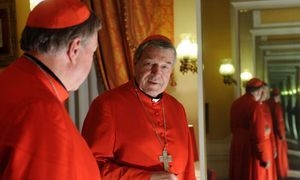
The media reaction to the death of Cardinal George Pell is extraordinary. But his contribution to Australian Catholicism is very much a mixed blessing.

Limited extracts from Paul Collins, Opinion Piece, The Age, 13 January 2022
I first met George Pell on the football field in the early 1960s. There were several colleges for trainee priests in Melbourne in those days and all played Australian rules. In this particular game, it was men training to be local clergy versus those training in religious orders. It was a social game, but it was tough. Pell was a ruckman for the Melbourne team and I was the umpire. He was a very good footballer, but very rough. I awarded quite a few free kicks against him. That set the tone for our relationship. We didn’t really know each other personally; most of our encounters were in conflictual situations debating the direction Australian Catholicism should take. Pell was ordained in Rome in 1966; I was ordained in Melbourne in 1967. Our clerical careers took us in different directions until the visit to Australia of Pope John Paul II in 1986, when we both became prominent in the media. By then, Pell was convinced that if the church was to have a future, it would have to maintain a fortress Catholicism that was “the one, true church” founded by Christ. It was guided by an infallible pope; it never changed its doctrines and its structure was divinely ordained. It was triumphalist Catholicism in which there was no room for questions or compromise. The church was there to teach the secular world the truth, not to learn from it. The clerical priesthood was very important to Pell. I still remember him on ABC TV saying that Christ established the priesthood at the Last Supper as though Jesus actually set up seminaries to train clergymen in the modern sense. When I challenged this historically, he scorned the idea. For him, priesthood was of divine origin and unchanging. Between 1966 and 1986, Pell had become the consummate churchman. Educated in Rome, he had made excellent Vatican connections, had mastered Italian and understood the Roman way of doing things — what was called Romanita. In contrast, I was a typical “Vatican II priest”. Having worked in parish ministry and tertiary teaching in Australia and the United States, I had become convinced that Catholicism had to continue applying the reforms begun by the Second Vatican Council (1962-1965). Vatican II developed a dynamic understanding of Catholicism that was opening up to the contemporary world and even learning from it — “throwing open the windows” as Pope John XXIII put it..........The Pell vision of a static, unchanging, triumphant church is fast transmuting into a church of the poor in newly emerging countries. Meanwhile, committed Catholics in Australia are fast becoming a post-Christian minority, although our ministries – education, health and aged care, charity and social welfare – still serve the community......Source. Photo:George Pell (centre) in team photo for St Patrick’s College 1956 First XVIII, The Age 20230113

Limited, edited, extracts from Chip Le Grand, The Age, 13 January 2023
Instead of flights of angels, the death of Cardinal George Pell provoked another roiling culture war to sing the cardinal to his rest. It’s what Australia’s most prominent church figure would have wanted. The only certainty, other than death, is that arguments about Pell’s ecclesiastic and cultural legacy will rage for years after his remains are interred in the crypt beneath Sydney’s St Mary’s Cathedral. The battleground preferred by Pell’s supporters, most prominently former prime minister Tony Abbott and Liberal Party leader Peter Dutton, is the ill-fated criminal prosecution of Pell for historical child sex offences which saw him jailed for 14 months before the High Court unanimously set aside his conviction and acquitted him of all charges. From within his solitary confinement cell inside Unit 8 of Melbourne’s Remand Centre, the cardinal came to see his imprisonment as proof that anti-church sentiment had motivated the charges against him and poisoned his prospects of receiving a fair trial........On the day of Pell’s death, Abbott described Pell’s incarceration as a form of crucifixion and declared him a saint for our times. Dutton urged the Victorian government and its institutions to reflect on their role in facilitating a political prosecution. Writing in Pell’s preferred newspaper, The Australian, Australian Catholic University law professor Greg Craven described Pell as the ultimate victim of the church’s child abuse scandal.........For Chrissie Foster, the mother of two girls sexually assaulted at primary school by a predatory Catholic priest who had been long protected by church officials, every plaudit was another cut. Both her daughters, as teenagers, resorted to substance abuse to dull the pain from their childhood trauma. Emma suicided. Katie walked in front of a car and now requires life-long care. Foster says anyone seeking to canonise Pell should read the findings of the royal commission into child sex abuse into his time in the Ballarat and Melbourne dioceses........Literary critic Peter Craven, one of Australia’s leading conservative intellectuals, says Pell was blamed for the crimes of the church because of his thuggish public persona, but it was this same refusal to compromise, combined with an earthy manner and capacity for self-deprecation, which made him a cultural icon of the right. “He was aware of the fact that he came across like a bulldog of religious conservatism, but he could also send himself up and all sorts of people felt his magnetism and his charm.” Those charms were not extended to anyone seen as a challenge or threat to the interests of the church, whether it be a rainbow-sashed parishioner requesting communion or a victim of abuse demanding that more be done. (Francis)Sullivan says an aspect of Pell poorly understood is the extent to which his approach and attitude evolved, particularly after his elevation as cardinal. “The older Pell, the one I dealt with through the royal commission time, I think was wiser about the approaches of the church in earlier decades. I found in him a greater propensity to be open-minded and caring.” Even the great defender of Catholic tradition understood that after the royal commission, change was unstoppable.....(MORE). Photo: Chrissie Foster and former PM Julia Gillard after national apology to victims of institutional child sexual abuse, Alex Ellinghausen, The Age 20210113
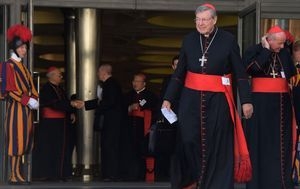
Extract from Francis Sullivan, Pearls & Irritations, John Menadue website, 13 January 2023
Cardinal George Pell died as he lived, a fierce defender of the Catholic church and of conservative Catholicism. He had an agenda and knew how to achieve it. Striding from the back blocks of Ballarat to the marbled floors of the Vatican, Pell demonstrated a sure-footedness many of his episcopal brothers envied. He was a political operative of the highest order. Little wonder present and past prime ministers have lauded his career. They know a political asset when they see one. Pell’s style of leadership was “old school” – authoritarian and uncompromising. It portrayed an absolutist and unflinching approach of the church to modern life. He was an ideological and cultural warrior within the church that resisted the changes of liberal society and its tolerance for diversity and individualism. His brand of Catholicism has proved to be unpopular and alienating to most Australians. His public persona became a lightening rod for discontent on many social issues, particularly those related to child sexual abuse. By his own design he was perceived as the head of the church in Australia and he bore the brunt of any anti-Catholic sentiment, justified or not. But try as he might, the fortunes of the church defied his best efforts. These days most Catholics do not attend regular mass, nor do they subscribe to conventional Catholic sexual and social ethics. The public regard for and trust in the church has declined. The revelations of episcopal mismanagement of the clerical sexual abuse crisis has accelerated the church’s irrelevance in Australian society. Pell, like other bishops of his time, has had to preside over a diminished church and, in many ways, his death symbolises the demise of a church out of touch and out of time. The future of Catholicism in Australia is and has always been bigger than Pell. Even in his latter years, Pell could not turn around the inclusive and consultative approach of Pope Francis. He tried to knock it off but to no effect. The Pope has set the church on a course of inclusive discernment and decision-making, called synodality, that would have been unheard of under a Pell administration. Now lay women and men are at the decision-making tables alongside clergy, religious leaders and bishops. Now ordinary Catholics are being consulted about the state of and future direction for their church. Now the very principles of a liberal and democratic society are being given due regard.....(MORE). Photo: Cardinal George Pell, Pearls and Irritations, 20230113
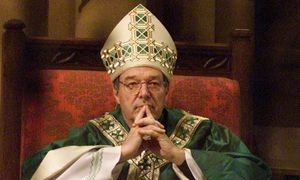
Limited extracts from Marilyn Hatton, Opinion Piece, The Age, 13 January 2023
Speaking as a woman and member of the Catholic faithful, I believe many will have mixed feelings about Cardinal George Pell’s death. Back in 2011, Pell presided over a model of church that was the antithesis of what many Catholics of faith, living in a modern democracy, found acceptable. Child abuse within the church had broken trust. I was among progressive Catholics working desperately to reform a church that was clearly ignorant of the terrible harm its clerical culture had caused. Even when it amounted to criminal behaviour, the church was resistant to criticism of its lack of transparency and accountability and the failures of its leadership – all devastatingly exposed by the Royal Commission into Institutional Responses to Child Sexual Abuse. Pell, as we know, was imprisoned on charges of child abuse, but this conviction was quashed by Australia’s High Court. Many will mourn his death this week. He was a significant figure in Australian and international Catholicism. He was instrumental in rectifying financial corruption within the Vatican. But Pell also led a church in Australia that subordinated and alienated its women – and continues to do so. Women are the solid core of the Catholic Church and the Catholic faith. Our church, like others, is shedding followers. If the equality of Catholic women is denied, the church will continue to bleed. It will have diminishing relevance to future generations. The world is rapidly becoming aware of how a patriarchal culture works destructively. When people of goodwill are confronted with it, they find it intolerable.........The pope has called the 2023-24 Vatican Synod on Synodality, for October this year, a major event for the universal Catholic Church that will gather cardinals and bishops from around the world to focus on change. Reformers hope to influence it. I respect what Pope Francis has achieved. Most recently, he appointed Sister Nathalie Becquart as one of the two undersecretaries of the Synod of Bishops. This makes Becquart, a significant church theologian, the most powerful woman in the Vatican. She will visit Australia and give public lectures in the Parramatta diocese on February 3. Becquart says she has taken her inspiration from many Catholic women before her. I do, too. As a mother and grandmother, I look forward to a Catholic Church of humility, inclusion and compassion. Pell led a church that alienated its women. I pray for reform....(Source). Photo: George Pell, 2002, as Archbishop of Sydney., Peter Rae, The Age, 20230113
Limited extract from Rob Harris, The Age, 20230113
Rome: The late Cardinal George Pell has been outed as the author of an explosive anonymous memo that condemned Pope Francis’ papacy as a disaster and catastrophe and accused him of silence on moral issues such as the war in Ukraine, human rights in China and a push to open the church to women priests. The memo, which was published last year under the pseudonym “Demos”, meaning “the people” in Greek, detailed a scathing list of what the author saw the failures of current Vatican leadership. The letter also laid out the criteria he thought the next conclave of bishops to choose a new pope should prioritise. Italian journalist Sandro Magister, a conservative Catholic with a long record of leaking authentic Vatican documents, revealed on his religious affairs blog Settimo Cielo, that the author was saying “he wanted me to publish it”. Pell, who had served as Francis’ first finance minister for three years before returning to Australia to face child sex abuse charges, died on Tuesday at a Rome hospital of heart complications following hip surgery. He was 81......(Source)
Limited Extracts from Barney Zwartz, The Age, 11 January 2023
George Pell was by far the best known and most polarising churchman in Australia in the past century, perhaps ever. The cardinal, who rose further on the world stage than any other Australian cleric, was loved and admired by most conservative Catholics and resented and disliked by the church’s progressive wing. He ascended higher in the Vatican than any Australian prelate, becoming an important adviser to popes and confidant to prime ministers, before falling lower than any, being the first cardinal in the world to be jailed for child sex offences and serving a year before the charges were unanimously dismissed by the High Court. He was robustly criticised by the Royal Commission into Institutional Responses to Child Sexual Abuse for his failures to hold clergy to account for their crimes or stop their offending. Pell’s ultra-orthodox theological position may have been a minority among Australian Catholics, even Catholic bishops. It was remarkable, for example, that despite his prominence he was never voted head of the Australian Catholic Bishops’ Conference by his peers, yet no bishop of his era exerted such a powerful influence on the Church. He was its public face in the broader community, he resolutely insisted, where possible, on his view of worship and authority, and he was enormously important in choosing bishops through his membership of the Congregation of Bishops and his Vatican networks. Three of his main proteges hold the important archiepiscopal positions in Sydney (Anthony Fisher), Melbourne (Peter Comensoli) and Hobart (Julian Porteous).............Cardinal Pell will be remembered as a formidable and articulate defender of traditional Catholicism, with an inclination towards the pre-Vatican II version, as a man who was highly intelligent, dedicated and occasionally ruthless in serving and protecting the Catholic Church. He relished his prominent role in Australia’s culture wars, but the extremes of such debates meant he was portrayed as a monster or a saint. He was neither all one, nor all the other.....(More).
Vatican news outlet EWTN is reporting that his death was due to complications from hip replacement surgery.
He was Australia's most senior Catholic and the Vatican's top finance minister before he left Rome in 2017 to stand trial in Melbourne for child sexual abuse offences. In 2018, Cardinal Pell was convicted of molesting two teenage choirboys in the sacristy at St Patrick's Cathedral while he was Archbishop of Melbourne in 1996. But Cardinal Pell always maintained his innocence and in 2020 his convictions were quashed in a unanimous decision by the High Court. Father Edward Moloney, the administrator of Ballarat's St Patrick's Cathedral where Cardinal Pell served as a priest, said the parish would commend his soul to God and his merciful judgment. "We pray in thanksgiving for all the good that he did," Father Moloney told AAP. "As with all our people who die, we remember the words of the scriptures - it is a holy and wholesome thought to pray for the dead." It would be a very difficult day for Cardinal Pell's family and loved ones, Victorian government minister Steve Dimopoulos said. "But also a very difficult day for survivors and victims of child sexual abuse and their families, and my thoughts are with them," Mr Dimopoulos told reporters on Wednesday.The news of the cardinal's death is slowly filtering through internationally, with the director of Texas San Angelo Diocese sending his prayers. "I was graced to hear (Cardinal Pell) speak at the Sacra Liturgia Conference this summer," Father Ryan Rojo tweeted on Wednesday morning. "A true inspiration without an ounce of bitterness, despite his having every reason to lean into anger."....(More)
Extract from Christopher Knaus and agencies, The Guardian, 11 January 2023
Wed 11 Jan 2023 12.49 AEDT
Cardinal Pell, the former Catholic archbishop of Melbourne and Sydney, died on Tuesday evening, reportedly following complications from hip surgery. He was the Vatican’s top finance minister before he left in 2017 to stand trial in Australia for child abuse offences. Cardinal Pell was, in 2018, convicted of molesting two teenage choirboys in the sacristy at St Patrick’s Cathedral while he was archbishop of Melbourne in 1996, but always maintained his innocence and his convictions were quashed in a unanimous decision by the High Court in 2020. Only days before his death, Pell attended the funeral of Pope Benedict XVI. The Archbishop of Sydney, Anthony Fisher, confirmed Pell’s death in a statement. “It is with deep sadness that I can confirm His Eminence, George Cardinal Pell, passed away in Rome in the early hours of this morning,” he said. “This news comes as a great shock to all of us.” “Please pray for the repose of the soul of Cardinal Pell, for comfort and consolation for his family and for all of those who loved him and are grieving him at this time.” Pell was ordained in 1966, became a bishop in 1987, and went on to become cardinal in 2003, and archbishop of Sydney and Melbourne in the late 1990s and early 2000s. He served as the first prefect for the Economy of the Holy See for five years, between 2014 and 2019. An Australian royal commission into child abuse found in 2020 that it was “implausible” that Pell did not know why Gerald Ridsdale, a paedophile priest, was being moved from parish to parish in Ballarat. Pell had always insisted he had heard no rumours about Ridsdale and said he was “surprised” at the royal commission’s findings, which he said were not supported by evidence......(Source)

After governing nearly ten years with his retired predecessor in the background, Pope Francis stands alone and unceremoniously turns the page
Limited extract from Robert Mickens, Letter from Rome, Subscription Joournal La Croix International, 7 January 2022
December 31st was not just the death of Benedict XVI. It was also the death of a fragile truce that has existed the past decade between two factions inside the Vatican and the worldwide Catholic hierarchy -- one yoked to the now-deceased former pope (Joseph Ratzinger) and the other tethered to Pope Francis (Jorge Bergoglio). It's probably too early to tell whether the (mostly hidden, though sometimes open) animosity that each faction has long harbored toward the other will escalate into an unimpeded ugly conflict before the eyes of all. For one thing, it's not clear which side was the first to torpedo this uneasy inter-ecclesial détente. After Francis surprised Roman Curia officials on December 28 by announcing that Benedict was gravely ill, a sequence of events quickly unfolded in manner that has not been fully disclosed. What we do know is that three days later, the morning of New Year's Eve, the Holy See Press Office announced that the former pope (he gave himself the title "pope emeritus") had just died. And shortly after that it was announced that he'd be given, according to his wishes, a "simple, sober and solemn" funeral on January 5. His body would lie in state for three days prior to that (Monday-Wednesday) in St. Peter's Basilica. This suggests that people in Francis' entourage (likely from the Secretariat of State and maybe even the pope himself) met with those in Benedict's circle (certainly including the former pope's personal secretary Archbishop Georg Gänswein) to agree on the funeral arrangements. But something seemed to have turned sour. A fragile peace greatly disturbed Within hours of Benedict's announced death, pre-recorded interviews with Gänswein -- and excerpts of a tell-all book the 66-year-old German prelate had ready to publish the day after the funeral -- were suddenly appearing on social and mainstream media. The archbishop's comments were seen as attacks on Francis. They also did more than merely suggest that Benedict was unhappy with some of the key decisions the Jesuit pope has made during his pontificate. Francis' reaction to his Bavarian predecessor's death seemed odd and, probably to some, cold and distant. He continued to forge ahead with all his pre-scheduled public engagements right up to the day of the funeral. And in the four discourses he delivered during those days he only briefly mentioned Benedict. Was this in retaliation to Gänswein's behavior? We don't know. It is also possible that the decisions that Francis and his aides made concerning the funeral arrangements are what provoked the archbishop to lash out. Whatever the origins, and no matter who took the first shot across the bow, a fragile peace has been greatly disturbed. And this could spell trouble for the pontificate of Francis, who at age 86 and in declining health, is likely to face even more open opposition than before. Those who think Benedict's death gives him greater freedom to govern the Church without the former pope's shadow looming over him, should think again. Benedict was actually a neutralizing element that kept the radical fringes in both opposing camps somewhat at bay. That element is now gone.......(Source). Photo: Pope Francis funeral Mass Benedict XVI, Michael Kappeler dpa picture-alliance Newscom MaxPPP. La Croix, 20230107
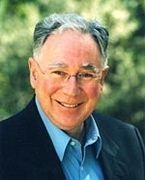
Limited Extract from Paul Collins, The Age, 7 January 2022
The death of Benedict XVI has got Vatican-watchers thinking about who will follow 86-year-old Pope Francis. Though Francis will want to stay on to carry through his initiatives, he’s a realist who will resign if health prevents him from pursuing his ministry. Popes are elected by cardinals under the age of 80 in a conclave - a closed, secretive process which takes place in the Vatican’s glorious Sistine Chapel. Today there are 125 electors from 69 countries. Catholicism’s real divide is no longer between progressives and conservatives, but between the secularised North and the global South, the developed and developing worlds. Cardinals from Haiti, Guatemala, Peru or Rwanda aren’t interested in gender issues, secularism or church governance. They care about hunger, poverty and injustice, but unfortunately often ignore women’s education and equality. The decisive shift that has occurred under Francis is the increase in these cardinals from the “periphery” – the developing world, where the majority of Catholics live. Our region exemplifies this: while Sydney has no cardinal, Papua New Guinea, Tonga and East Timor do. Francis has deliberately broken the Euro-Western dominance of Catholicism when it comes to papal elections......Source. Photo: The Age, 20230107
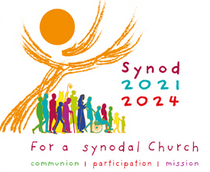
Extract from ACBC, Catholic Outlook, 3 January 2023
While the hundreds of Australians who participated in the latest round of discernment for the global Synod of Bishops process identified issues and challenges facing Catholics, there was a strong sense of hope for the Church’s future. Almost 80 groups from across Australia, comprising a total of about 750 people, took up the invitation to reflect on the Working Document for the Continental Stage, which was published in October. Bishops conferences around the world are leading similar processes, promoting ongoing reflection in anticipation of the two Synod of Bishops assemblies, set for October 2023 and October 2024. Trudy Dantis, director of the National Centre for Pastoral Research and national coordinator for the Synod of Bishops process, said a number of common themes emerged in this latest report. “Throughout the Plenary Council journey and this Synod of Bishops process, there has been a constant refrain of the desire for a Church that reaches out to those on the margins,” she said. “In fact, this most recent invitation offered people a chance to identify challenges and priorities, and inclusion and equality were cited, along with hopes for more collaborative leadership, greater formation, communities of belonging and engagement and a Church that evangelises.” Dr Dantis said many who participated in the reflection process for the Working Document for the Continental Stage said they felt it offered an honest critique of the Church and the life of the faithful today. “The document doesn’t sugarcoat the challenges and the difficulties, including the polarisation of some within the Church, the drift from religious practice and the disillusionment of many over issues like the abuse crisis,” she noted. “Our Australian report similarly captures that apparent tension, outlining where people see the need for change and where they desire a holding firm to some of the Church’s practices, teachings and tradition. “As one group shared, though, ‘we should never become depressed or given to the belief that the situation in the Church or even in human society is helpless and beyond redemption’.” The four bishops conferences of Oceania – Australia, New Zealand, Papua New Guinea/Solomon Islands and the Pacific – and the Eastern churches submitted reports on the Working Document for the Continental Stage this week. Find the Australian report HERE. Those reports will inform the work of a discernment and writing group made up of representatives of the four conferences and the Eastern churches, who will meet in Melbourne in January to draft a continental report. That document will be reviewed and refined at the meeting of the Federation of Catholic Bishops Conferences of Oceania assembly in Fiji in February. “We look forward to exploring more deeply this call to be a Church that walks together, not just in our dioceses or in our country but in this region of Oceania and beyond,” Australian Catholic Bishops Conference president Archbishop Timothy Costelloe SDB said of the Suva gathering. The continental report that emerges, along with similar documents from around the world, will help to shape the working document, or instrumentum laboris, for the Synod of Bishops assemblies.

Extract from Paul Collins, Pearls & Irritations, John Menadue website, 3 January 2022
I actually have a letter personally signed by Joseph Ratzinger. It was the last in a three year-long correspondence between the then Congregation (now Dicastery) for the Doctrine of the Faith (DDF) and myself focusing on ‘errors’ in my 1997 book Papal Power (London, Harper Collins). The letter was clear that the DDF was preparing to censure me, which I forestalled by resigning from active priestly ministry. Personal interactions aside, I have real respect for Joseph Ratzinger because he saved Catholicism during the last years of John Paul II, who was seriously ill for several years before he died on 2 April 2005. Those years were difficult as the pope’s ability to govern and make decisions declined. Ratzinger, his closest collaborator, saw this close-up and intimately. Clearly, John Paul should have resigned. After John Paul’s funeral the cardinals gathered in Rome for formal pre-conclave discussions and, more importantly, informal meetings. These interactions gave them a chance to size each other up and look for a consensus candidate. Ratzinger was quickly elected in the April 2005 conclave. His only challenger was Jorge Bergoglio, Archbishop of Buenos Aires. As pope Benedict received a mixed reception. Traditionalists were ecstatic; Vatican II Catholics respectfully welcomed him. Hans Küng said: ‘The name Benedict XVI leaves open the possibility for a more moderate papacy.’ Calling himself ‘Benedict’ signalled he wasn’t going to be ‘John Paul III’. No one in the media had given Ratzinger a chance of being elected; he was seen as too close to John Paul. So, I was shocked when, standing in the Piazza of Saint Peter’s with ABC TV News, his election was announced. Who was Joseph Alois Ratzinger? Born in Marktl-am-Inn in Bavaria in April 1927, he grew up under the Nazis. There was no sympathy for National Socialism in the Ratzinger household, but at 16 he was drafted unwillingly into the Hitler Youth and then into the German army. After the war he entered the Munich-Freising seminary and was ordained priest in 1951. In 1958 he entered academic life teaching first at Bonn University, then Münster. In 1966 was appointed professor of Catholic theology at Tübingen University. He played an important role at Vatican Council II (1962-1965) and was associated with the reformist majority. But after the council he became disillusioned with what he saw as the crassness and banality of the new vernacular liturgy, the exodus from religious life and priesthood and the student riots of 1967-1968. He resigned from Tübingen in 1969 and joined the theology faculty at Regensburg University......(More). Photo: Benedict XVI,s life and papacy was a mixed blessing for Catholicism, Pearls and Irritations, John Menadue website 20230103

Limited Extracts from Massimo Faggioli, Signs of the Times, Subscription journal La Croix International, 2 January 2022
With the death of Joseph Ratzinger-Benedict XVI, contemporary Catholicism has lost one of its most iconic figures. The former pope, who died on the final day of 2022, had such influence that the terms "Ratzingerism" and "Ratzingerian" were coined to identify a version of Catholicism that embodied his peculiar conversion from being a proponent of Vatican Council II during its four sessions (1962-65) to becoming, just a few years later, a fierce critic of the conciliar progressives. His intellectual, ecclesial, and ecclesiastical persona was strengthened by the authority of German academic theology in which he chose a path very different from his leading contemporaries in the firmament of Catholic theology, such as Hans Küng. Ratzinger chose a less glamorous path, but over the long haul it gave him much greater influence within the Church. That influence went well beyond his widely-read books and essays, beyond the boundaries of the Catholic clergy and intelligentsia, and even beyond the doctrinal policies that he shaped and enforced for more than thirty years -- first, as a cardinal-prefect of the Congregation for the Doctrine of the Faith (1981-2005), and then as Bishop of Rome (2005-2013). He became the symbol of the Vatican's regaining control over the energies that the Council had unleashed. But Ratzinger was not only a controller, in ways typical of other Roman Curia cardinals and top officials. His reach extended even further than that. Redefining Church leadership..........But for still others it will be the funeral of a hero of a certain type of Catholic culture that sees itself as swimming against the tide both in the world and in the Church.......(More). Photo:Pope Benedict XVI celebrates Vespers 2008, ETTORE FERRARI EPA MaxPPP, La Croix 20230102
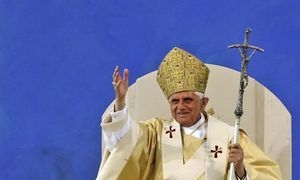
Limited extract from Nicole Winfield, The Age/SMH, Associated Press, 2 January 2022
Vatican City: Pope Emeritus Benedict XVI is rightly credited with having been one of the 20th century’s most prolific Catholic theologians, a teacher-pope who preached the faith via volumes of books, sermons and speeches. But he rarely got credit for another important aspect of his legacy: having done more than anyone before him to turn the Vatican around on clergy sexual abuse. As cardinal and pope, Benedict pushed through revolutionary changes to church law to make it easier to defrock predator priests, and he sacked hundreds of them. Pope Benedict XVI waves to pilgrims at the end of a papal Mass at the Islinger field in Regensburg, southern Germany, on September 12, 2006. Pope Benedict XVI waves to pilgrims at the end of a papal Mass at the Islinger field in Regensburg, southern Germany, on September 12, 2006. He was the first pontiff to meet with abuse survivors. And he reversed his revered predecessor on the most egregious case of the 20th century Catholic Church, finally taking action against a serial paedophile who was adored by St. John Paul II’s inner circle. But much more needed to be done, and following his death Saturday, abuse survivors and their advocates made clear they did not feel his record was anything to praise, noting that he, like the rest of the Catholic hierarchy, protected the image of the institution over the needs of victims and in many ways embodied the clerical system that fuelled the problem. “In our view, Pope Benedict XVI is taking decades of the church’s darkest secrets to his grave with him,” said SNAP, the main US-based group of clergy abuse survivors. Matthias Katsch of Eckiger Tisch, a group representing German survivors, said Benedict will go down in history for abuse victims as “a person who was long responsible in the system they fell victim to,” according to the dpa news agency.....(More). Photo: Pope Benedict XVI waves pilgrims southern Germany, 2006. AP, The Age, SMH, 20230102
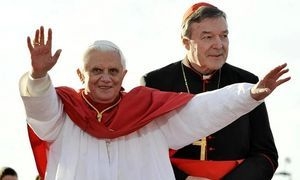
Extract from Anna Patty, SMH, 1 January 2022
Cardinal George Pell remembers Pope Benedict as an inspiration to younger priests and one of the finest theologians, but says he leaves a mixed legacy and will be mostly remembered for his abdication.
Speaking from Rome, Pell said Benedict, who died on Saturday, was not a natural governor or manager “and things did not turn out exactly as he hoped”. “The latter years of his pontificate were bedevilled by financial and other scandals,” he said. “As always therefore his legacy is mixed, but his contribution was invaluable for more than fifty years, from the beginning of the Second Vatican Council. “But he will be mostly remembered for his abdication.” Benedict stunned the world on February 11, 2013, when he announced that he no longer had the strength to run the Catholic Church. Pell said Benedict, who had lived longer in retirement than as pope, inspired a decade of young vocations to the priesthood and religious life and was “one of the finest theologians of the twentieth century and indeed the best theological writer from the long list of more than nineteen hundred years of popes”. He was the first pope to abdicate since Celestine V in 1294 and controversial because of his social and theological conservatism. “He was regularly assailed by a wide variety of enemies, who understood his importance. He had been a brilliant junior partner to his predecessor, St John Paul the Great,” Pell said. “A Christian gentleman and a German scholar of the old school, Pope Benedict will be long revered for his faith, learning and fidelity.......The Bishop of Broken Bay, Reverend Anthony Randazzo, said when Joseph Ratzinger was elected Pope on April 19, 2005, some Catholics feared that he would be a severe, rigid, and controlling leader. “Likewise, it is fair to say that some Catholics hoped that this indeed would be the case,” he said. Having been called to Rome by Cardinal Ratzinger in 2003, Randazzo said he encountered “a gentle man, by nature a shy person, who went out of his way to be hospitable and welcoming”. Sydney Archbishop Anthony Fisher, who oversaw World Youth Day in 2008, said in a statement that Pope Benedict had been a key influence and someone with whom he became close. Benedict visited Australia in 2008 for World Youth Day, drawing huge crowds. “I had the great privilege of spending some private moments with Pope Benedict, away from the spotlight,” Fisher said. “They were moments I will forever cherish. He had a great intellect, which he shared through his work as a professor, a Church leader and ultimately as Pope.”..........(MORE). Photo: Pope Benedict walks with Cardinal George Pell World Youth Day welcome Sydney 2008 AP, SMH 20230101
Limited extracts from Massimo Faggioli, Commomnweal, 1 January 2022
Almost ten years after making history for resigning from the papacy, Joseph Ratzinger—Pope Emeritus Benedict XVI—has died at the age of ninety-five, in the Vatican’s Mater Ecclesiae monastery, where he had been living since May 2013. Born in Bavaria, Germany, on April 16, 1927, Ratzinger had a remarkable impact on the life and intellectual tradition of the Catholic Church, not only as pope, but also as one of the most influential theologians at Vatican II. After publishing major works commenting positively on the documents of Vatican II during the council and in the late 1960s, his insights affected the reception of the council from the 1970s onward, as his anti-progressive views—often expressed with a contrarian spirit—became inseparable from his persona, even after his election to the papacy in 2005. As a powerful doctrinal policy-maker in the era following Vatican II, Ratzinger was in many ways the alter-ego of Pope John Paul II, whose pontificate is impossible to interpret without considering Ratzinger’s role. After a stint as archbishop of Munich (1977–1981), he was appointed by John Paul II as Prefect of the Congregation for the Doctrine of the Faith, an institution reformed after Vatican II. Under Ratzinger’s leadership, it gained greater prominence and generated controversy. His importance and influence was so valuable to John Paul II that the pope turned down his requests to leave his CDF post, which also helped make possible Ratzinger’s eventual election to the papacy. Already known for revisiting Vatican II interpretations of ecumenism and interreligious dialogue, Ratzinger as Pope Benedict XVI turned his attention to other post-conciliar developments, most notably liturgical reform. He helped himself by remaining something of the theologian-in-chief while occupying the chair of Peter, with no one under him serving as influential a role as he did under John Paul II. Yet he was unable to establish and maintain the distinction between his personal theological views and the theology of the Church, so for many Catholics around the world these came to be conflated. This can be traced in part to his shyness and reluctance to “perform” on the global media stage the way his predecessor did (and his successor does)—something crucial for a pope in the twenty-first century. In December 2005, eight months after becoming pope, Benedict delivered a speech in which he laid out his interpretation of Vatican II as a “hermeneutic of continuity and reform” (as opposed to a “hermeneutic of discontinuity and rupture”). This soon proved problematic. Response to this framing came to function as a litmus test of orthodoxy for some interpreters of the council, who as supporters of Benedict focused far more on “continuity” than “reform,” rather than thinking of them together as the pope had described. Yet at the same time, it’s hard to find an example of “reform” that Benedict himself proposed that didn’t try to undo changes brought about by Vatican II and the early post-conciliar period..............Of course, it was his resignation from the papacy for which history will remember Benedict, and which will have lasting impact on the Catholic Church..............Both as cardinal and pope, Ratzinger met with some failures or came up short. He was unsuccessful in recasting the papacy in such a way that a pope could avoid being a spokesman for a post-European, global Catholic Church and for interreligious dialogue, a posture since embraced and embodied by Francis. Ratzinger also did not work to bring about the canonical and theological change that the sexual-abuse crisis made painfully and clearly necessary; instead, he continued to view the scandal through the lens of the post-1968 culture war. And, he never made a real attempt at reforming the Vatican and the central government of the Catholic Church.........He will remain one of the most widely published and widely read popes in Church history, and likely one of the most controversial. Few committed Catholics will be indifferent or dispassionate about him......(MORE). Photo: Pope Benedict final general audience Saint P Square 2013 CNS Paul Haring, Commonweal 20230101